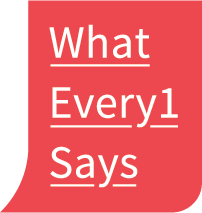(all)
Global Humanities | History of Humanities | Liberal Arts | Humanities and Higher Education | Humanities as Research Activity | Humanities Teaching & Curricula | Humanities and the Sciences | Medical Humanities | Public Humanities | Humanities Advocacy | Humanities and Social Groups | Value of Humanities | Humanities and Economic Value | Humanities Funding | Humanities Statistics | Humanities Surveys | "Crisis" of the Humanities
Humanities Organizations: Humanities Councils (U.S.) | Government Agencies | Foundations | Scholarly Associations
Humanities in: Africa | Asia (East) | Asia (South) | Australasia | Europe | Latin America | Middle East | North America: Canada - Mexico - United States | Scandinavia | United Kingdom
(all)
Lists of News Sources | Databases with News Archives | History of Journalism | Journalism Studies | Journalism Statistics | Journalism Organizations | Student Journalism | Data Journalism | Media Frames (analyzing & changing media narratives using "frame theory") | Media Bias | Fake News | Journalism and Minorities | Journalism and Women | Press Freedom | News & Social Media
(all)
Corpus Representativeness
Comparison paradigms for idea of a corpus: Archives as Paradigm | Canons as Paradigm | Editions as Paradigm | Corpus Linguistics as Paradigm
(all)
Artificial Intelligence | Big Data | Data Mining | Data Notebooks (Jupyter Notebooks) | Data Visualization (see also Topic Model Visualizations) | Hierarchical Clustering | Interpretability & Explainability (see also Topic Model Interpretation) | Mapping | Natural Language Processing | Network Analysis | Open Science | Reporting & Documentation Methods | Reproducibility | Sentiment Analysis | Social Media Analysis | Statistical Methods | Text Analysis (see also Topic Modeling) | Text Classification | Wikification | Word Embedding & Vector Semantics
Topic Modeling (all)
Selected DH research and resources bearing on, or utilized by, the WE1S project.
(all)
Distant Reading | Cultural Analytics | | Sociocultural Approaches | Topic Modeling in DH | Non-consumptive Use
Searchable version of bibliography on Zotero site
For WE1S developers: Biblio style guide | Biblio collection form (suggest additions) | WE1S Bibliography Ontology Outline
2133649
Data notebooks
1
chicago-fullnote-bibliography
50
date
desc
year
1
1
1
4584
https://we1s.ucsb.edu/wp-content/plugins/zotpress/
%7B%22status%22%3A%22success%22%2C%22updateneeded%22%3Afalse%2C%22instance%22%3Afalse%2C%22meta%22%3A%7B%22request_last%22%3A0%2C%22request_next%22%3A0%2C%22used_cache%22%3Atrue%7D%2C%22data%22%3A%5B%7B%22key%22%3A%22Y7Q3CUCI%22%2C%22library%22%3A%7B%22id%22%3A2133649%7D%2C%22meta%22%3A%7B%22creatorSummary%22%3A%22Koenzen%20et%20al.%22%2C%22parsedDate%22%3A%222020%22%2C%22numChildren%22%3A0%7D%2C%22bib%22%3A%22%26lt%3Bdiv%20class%3D%26quot%3Bcsl-bib-body%26quot%3B%20style%3D%26quot%3Bline-height%3A%201.35%3B%20padding-left%3A%201em%3B%20text-indent%3A-1em%3B%26quot%3B%26gt%3B%5Cn%20%20%26lt%3Bdiv%20class%3D%26quot%3Bcsl-entry%26quot%3B%26gt%3BKoenzen%2C%20Andreas%2C%20Neil%20Ernst%2C%20and%20Margaret-Anne%20Storey.%20%26%23x201C%3BCode%20Duplication%20and%20Reuse%20in%20Jupyter%20Notebooks.%26%23x201D%3B%20%26lt%3Bi%26gt%3BArXiv%3A2005.13709%20%5BCs%5D%26lt%3B%5C%2Fi%26gt%3B%2C%202020.%20%26lt%3Ba%20class%3D%26%23039%3Bzp-ItemURL%26%23039%3B%20href%3D%26%23039%3Bhttp%3A%5C%2F%5C%2Farxiv.org%5C%2Fabs%5C%2F2005.13709%26%23039%3B%26gt%3Bhttp%3A%5C%2F%5C%2Farxiv.org%5C%2Fabs%5C%2F2005.13709%26lt%3B%5C%2Fa%26gt%3B.%20%26lt%3Ba%20title%3D%26%23039%3BCite%20in%20RIS%20Format%26%23039%3B%20class%3D%26%23039%3Bzp-CiteRIS%26%23039%3B%20data-zp-cite%3D%26%23039%3Bapi_user_id%3D2133649%26amp%3Bitem_key%3DY7Q3CUCI%26%23039%3B%20href%3D%26%23039%3Bjavascript%3Avoid%280%29%3B%26%23039%3B%26gt%3BCite%26lt%3B%5C%2Fa%26gt%3B%20%26lt%3B%5C%2Fdiv%26gt%3B%5Cn%26lt%3B%5C%2Fdiv%26gt%3B%22%2C%22data%22%3A%7B%22itemType%22%3A%22journalArticle%22%2C%22title%22%3A%22Code%20Duplication%20and%20Reuse%20in%20Jupyter%20Notebooks%22%2C%22creators%22%3A%5B%7B%22creatorType%22%3A%22author%22%2C%22firstName%22%3A%22Andreas%22%2C%22lastName%22%3A%22Koenzen%22%7D%2C%7B%22creatorType%22%3A%22author%22%2C%22firstName%22%3A%22Neil%22%2C%22lastName%22%3A%22Ernst%22%7D%2C%7B%22creatorType%22%3A%22author%22%2C%22firstName%22%3A%22Margaret-Anne%22%2C%22lastName%22%3A%22Storey%22%7D%5D%2C%22abstractNote%22%3A%22Duplicating%20one%26%23039%3Bs%20own%20code%20makes%20it%20faster%20to%20write%20software.%20This%20expediency%20is%20particularly%20valuable%20for%20users%20of%20computational%20notebooks.%20Duplication%20allows%20notebook%20users%20to%20quickly%20test%20hypotheses%20and%20iterate%20over%20data.%20In%20this%20paper%2C%20we%20explore%20how%20much%2C%20how%20and%20from%20where%20code%20duplication%20occurs%20in%20computational%20notebooks%2C%20and%20identify%20potential%20barriers%20to%20code%20reuse.%20Previous%20work%20in%20the%20area%20of%20computational%20notebooks%20describes%20developers%26%23039%3B%20motivations%20for%20reuse%20and%20duplication%20but%20does%20not%20show%20how%20much%20reuse%20occurs%20or%20which%20barriers%20they%20face%20when%20reusing%20code.%20To%20address%20this%20gap%2C%20we%20first%20analyzed%20GitHub%20repositories%20for%20code%20duplicates%20contained%20in%20a%20repository%26%23039%3Bs%20Jupyter%20notebooks%2C%20and%20then%20conducted%20an%20observational%20user%20study%20of%20code%20reuse%2C%20where%20participants%20solved%20specific%20tasks%20using%20notebooks.%20Our%20findings%20reveal%20that%20repositories%20in%20our%20sample%20have%20a%20mean%20self-duplication%20rate%20of%207.6%25.%20However%2C%20in%20our%20user%20study%2C%20few%20participants%20duplicated%20their%20own%20code%2C%20preferring%20to%20reuse%20code%20from%20online%20sources.%22%2C%22date%22%3A%222020%22%2C%22language%22%3A%22en%22%2C%22DOI%22%3A%22%22%2C%22ISSN%22%3A%22%22%2C%22url%22%3A%22http%3A%5C%2F%5C%2Farxiv.org%5C%2Fabs%5C%2F2005.13709%22%2C%22collections%22%3A%5B%5D%2C%22dateModified%22%3A%222020-09-03T06%3A06%3A35Z%22%2C%22tags%22%3A%5B%7B%22tag%22%3A%22Data%20notebooks%22%7D%2C%7B%22tag%22%3A%22Data%20science%22%7D%2C%7B%22tag%22%3A%22Reproducibility%22%7D%5D%7D%7D%2C%7B%22key%22%3A%22LG4WZAIE%22%2C%22library%22%3A%7B%22id%22%3A2133649%7D%2C%22meta%22%3A%7B%22creatorSummary%22%3A%22Chattopadhyay%20et%20al.%22%2C%22parsedDate%22%3A%222020%22%2C%22numChildren%22%3A0%7D%2C%22bib%22%3A%22%26lt%3Bdiv%20class%3D%26quot%3Bcsl-bib-body%26quot%3B%20style%3D%26quot%3Bline-height%3A%201.35%3B%20padding-left%3A%201em%3B%20text-indent%3A-1em%3B%26quot%3B%26gt%3B%5Cn%20%20%26lt%3Bdiv%20class%3D%26quot%3Bcsl-entry%26quot%3B%26gt%3BChattopadhyay%2C%20Souti%2C%20Ishita%20Prasad%2C%20Austin%20Z.%20Henley%2C%20Anita%20Sarma%2C%20and%20Titus%20Barik.%20%26%23x201C%3BWhat%26%23x2019%3Bs%20Wrong%20with%20Computational%20Notebooks%3F%20Pain%20Points%2C%20Needs%2C%20and%20Design%20Opportunities.%26%23x201D%3B%20In%20%26lt%3Bi%26gt%3BProceedings%20of%20the%202020%20CHI%20Conference%20on%20Human%20Factors%20in%20Computing%20Systems%26lt%3B%5C%2Fi%26gt%3B%2C%201%26%23x2013%3B12.%20CHI%20%26%23x2019%3B20.%20Honolulu%2C%20HI%2C%20USA%3A%20Association%20for%20Computing%20Machinery%2C%202020.%20%26lt%3Ba%20class%3D%26%23039%3Bzp-ItemURL%26%23039%3B%20href%3D%26%23039%3Bhttps%3A%5C%2F%5C%2Fdoi.org%5C%2F10.1145%5C%2F3313831.3376729%26%23039%3B%26gt%3Bhttps%3A%5C%2F%5C%2Fdoi.org%5C%2F10.1145%5C%2F3313831.3376729%26lt%3B%5C%2Fa%26gt%3B.%20%26lt%3Ba%20title%3D%26%23039%3BCite%20in%20RIS%20Format%26%23039%3B%20class%3D%26%23039%3Bzp-CiteRIS%26%23039%3B%20data-zp-cite%3D%26%23039%3Bapi_user_id%3D2133649%26amp%3Bitem_key%3DLG4WZAIE%26%23039%3B%20href%3D%26%23039%3Bjavascript%3Avoid%280%29%3B%26%23039%3B%26gt%3BCite%26lt%3B%5C%2Fa%26gt%3B%20%26lt%3B%5C%2Fdiv%26gt%3B%5Cn%26lt%3B%5C%2Fdiv%26gt%3B%22%2C%22data%22%3A%7B%22itemType%22%3A%22conferencePaper%22%2C%22title%22%3A%22What%27s%20Wrong%20with%20Computational%20Notebooks%3F%20Pain%20Points%2C%20Needs%2C%20and%20Design%20Opportunities%22%2C%22creators%22%3A%5B%7B%22creatorType%22%3A%22author%22%2C%22firstName%22%3A%22Souti%22%2C%22lastName%22%3A%22Chattopadhyay%22%7D%2C%7B%22creatorType%22%3A%22author%22%2C%22firstName%22%3A%22Ishita%22%2C%22lastName%22%3A%22Prasad%22%7D%2C%7B%22creatorType%22%3A%22author%22%2C%22firstName%22%3A%22Austin%20Z.%22%2C%22lastName%22%3A%22Henley%22%7D%2C%7B%22creatorType%22%3A%22author%22%2C%22firstName%22%3A%22Anita%22%2C%22lastName%22%3A%22Sarma%22%7D%2C%7B%22creatorType%22%3A%22author%22%2C%22firstName%22%3A%22Titus%22%2C%22lastName%22%3A%22Barik%22%7D%5D%2C%22abstractNote%22%3A%22Computational%20notebooks%20-%20such%20as%20Azure%2C%20Databricks%2C%20and%20Jupyter%20-%20are%20a%20popular%2C%20interactive%20paradigm%20for%20data%20scientists%20to%20author%20code%2C%20analyze%20data%2C%20and%20interleave%20visualizations%2C%20all%20within%20a%20single%20document.%20Nevertheless%2C%20as%20data%20scientists%20incorporate%20more%20of%20their%20activities%20into%20notebooks%2C%20they%20encounter%20unexpected%20difficulties%2C%20or%20pain%20points%2C%20that%20impact%20their%20productivity%20and%20disrupt%20their%20workflow.%20Through%20a%20systematic%2C%20mixed-methods%20study%20using%20semi-structured%20interviews%20%28n%3D20%29%20and%20survey%20%28n%3D156%29%20with%20data%20scientists%2C%20we%20catalog%20nine%20pain%20points%20when%20working%20with%20notebooks.%20Our%20findings%20suggest%20that%20data%20scientists%20face%20numerous%20pain%20points%20throughout%20the%20entire%20workflow%20-%20from%20setting%20up%20notebooks%20to%20deploying%20to%20production%20-%20across%20many%20notebook%20environments.%20Our%20data%20scientists%20report%20essential%20notebook%20requirements%2C%20such%20as%20supporting%20data%20exploration%20and%20visualization.%20The%20results%20of%20our%20study%20inform%20and%20inspire%20the%20design%20of%20computational%20notebooks.%22%2C%22date%22%3A%222020%22%2C%22proceedingsTitle%22%3A%22Proceedings%20of%20the%202020%20CHI%20Conference%20on%20Human%20Factors%20in%20Computing%20Systems%22%2C%22conferenceName%22%3A%22%22%2C%22language%22%3A%22en%22%2C%22DOI%22%3A%2210.1145%5C%2F3313831.3376729%22%2C%22ISBN%22%3A%22978-1-4503-6708-0%22%2C%22url%22%3A%22https%3A%5C%2F%5C%2Fdoi.org%5C%2F10.1145%5C%2F3313831.3376729%22%2C%22collections%22%3A%5B%5D%2C%22dateModified%22%3A%222020-09-03T06%3A05%3A04Z%22%2C%22tags%22%3A%5B%7B%22tag%22%3A%22Data%20notebooks%22%7D%2C%7B%22tag%22%3A%22Data%20science%22%7D%5D%7D%7D%2C%7B%22key%22%3A%22ALXR57ZG%22%2C%22library%22%3A%7B%22id%22%3A2133649%7D%2C%22meta%22%3A%7B%22creatorSummary%22%3A%22DePratti%22%2C%22parsedDate%22%3A%222020%22%2C%22numChildren%22%3A0%7D%2C%22bib%22%3A%22%26lt%3Bdiv%20class%3D%26quot%3Bcsl-bib-body%26quot%3B%20style%3D%26quot%3Bline-height%3A%201.35%3B%20padding-left%3A%201em%3B%20text-indent%3A-1em%3B%26quot%3B%26gt%3B%5Cn%20%20%26lt%3Bdiv%20class%3D%26quot%3Bcsl-entry%26quot%3B%26gt%3BDePratti%2C%20Roland.%20%26%23x201C%3BJupyter%20Notebooks%20versus%20a%20Textbook%20in%20a%20Big%20Data%20Course.%26%23x201D%3B%20%26lt%3Bi%26gt%3BJournal%20of%20Computing%20Sciences%20in%20Colleges%26lt%3B%5C%2Fi%26gt%3B%2035%2C%20no.%208%20%282020%29%3A%20208%26%23x2013%3B20.%20%26lt%3Ba%20class%3D%26%23039%3Bzp-ItemURL%26%23039%3B%20href%3D%26%23039%3Bhttps%3A%5C%2F%5C%2Fdl.acm.org%5C%2Fdoi%5C%2Fabs%5C%2F10.5555%5C%2F3417639.3417658%26%23039%3B%26gt%3Bhttps%3A%5C%2F%5C%2Fdl.acm.org%5C%2Fdoi%5C%2Fabs%5C%2F10.5555%5C%2F3417639.3417658%26lt%3B%5C%2Fa%26gt%3B.%20%26lt%3Ba%20title%3D%26%23039%3BCite%20in%20RIS%20Format%26%23039%3B%20class%3D%26%23039%3Bzp-CiteRIS%26%23039%3B%20data-zp-cite%3D%26%23039%3Bapi_user_id%3D2133649%26amp%3Bitem_key%3DALXR57ZG%26%23039%3B%20href%3D%26%23039%3Bjavascript%3Avoid%280%29%3B%26%23039%3B%26gt%3BCite%26lt%3B%5C%2Fa%26gt%3B%20%26lt%3B%5C%2Fdiv%26gt%3B%5Cn%26lt%3B%5C%2Fdiv%26gt%3B%22%2C%22data%22%3A%7B%22itemType%22%3A%22journalArticle%22%2C%22title%22%3A%22Jupyter%20notebooks%20versus%20a%20textbook%20in%20a%20big%20data%20course%22%2C%22creators%22%3A%5B%7B%22creatorType%22%3A%22author%22%2C%22firstName%22%3A%22Roland%22%2C%22lastName%22%3A%22DePratti%22%7D%5D%2C%22abstractNote%22%3A%22In%20building%20curriculum%20in%20new%20areas%20of%20computer%20science%2C%20often%20the%20tools%20introduced%20in%20the%20course%20are%20an%20important%20component.%20This%20is%20especially%20true%20in%20the%20area%20of%20big%20data%2C%20where%20the%20complexity%20of%20the%20problems%20the%20area%20tackles%20is%20high.%20In%20the%204%20years%20since%20its%20inception%2C%20my%20big%20data%20course%20has%20gone%20through%20two%20major%20redesigns%20and%20has%20settled%20on%20a%20tool%20set%20including%3A%20the%20Hadoop%20platform%2C%20Spark%20processing%20engine%2C%20the%20Python%20programming%20language%2C%20Eclipse%20IDE%2C%20and%20Jupyter%20Notebooks.%20Many%20of%20the%20changes%20were%20driven%20by%20input%20from%20professional%20peers%20on%20big%20data%20teams%2C%20who%20were%20struggling%20with%20the%20complexity%20resulting%20from%20the%20low-level%20programming%20model%20used%20by%20MapReduce.%20Jupyter%20Notebook%2C%20a%20type%20of%20computational%20notebook%2C%20was%20added%20to%20the%20course%20to%20introduce%20students%20to%20the%20Python%20programming%20language.%20Data%20scientists%20and%20researchers%20have%20found%20computational%20notebooks%20an%20effective%20tool%20to%20manage%20their%20work%20by%20providing%20a%20way%20to%20track%20their%20thinking%20process%2C%20their%20code%2C%20and%20conclusions%20in%20one%20web%20document.%20To%20assess%20the%20effectiveness%20of%20using%20Jupyter%20Notebook%20in%20a%20big%20data%20course%2C%20students%26%23039%3B%20views%20on%20the%20use%20of%20computational%20notebooks%20and%20traditional%20textbooks%20were%20captured%20and%20statistically%20analyzed.%22%2C%22date%22%3A%222020%22%2C%22language%22%3A%22en%22%2C%22DOI%22%3A%22%22%2C%22ISSN%22%3A%22%22%2C%22url%22%3A%22https%3A%5C%2F%5C%2Fdl.acm.org%5C%2Fdoi%5C%2Fabs%5C%2F10.5555%5C%2F3417639.3417658%22%2C%22collections%22%3A%5B%5D%2C%22dateModified%22%3A%222020-09-03T05%3A59%3A32Z%22%2C%22tags%22%3A%5B%7B%22tag%22%3A%22Data%20notebooks%22%7D%2C%7B%22tag%22%3A%22Data%20science%22%7D%5D%7D%7D%2C%7B%22key%22%3A%22PSUNF3M9%22%2C%22library%22%3A%7B%22id%22%3A2133649%7D%2C%22meta%22%3A%7B%22creatorSummary%22%3A%22Willis%20et%20al.%22%2C%22parsedDate%22%3A%222020%22%2C%22numChildren%22%3A0%7D%2C%22bib%22%3A%22%26lt%3Bdiv%20class%3D%26quot%3Bcsl-bib-body%26quot%3B%20style%3D%26quot%3Bline-height%3A%201.35%3B%20padding-left%3A%201em%3B%20text-indent%3A-1em%3B%26quot%3B%26gt%3B%5Cn%20%20%26lt%3Bdiv%20class%3D%26quot%3Bcsl-entry%26quot%3B%26gt%3BWillis%2C%20Alistair%2C%20Patricia%20Charlton%2C%20and%20Tony%20Hirst.%20%26%23x201C%3BDeveloping%20Students%26%23x2019%3B%20Written%20Communication%20Skills%20with%20Jupyter%20Notebooks.%26%23x201D%3B%20In%20%26lt%3Bi%26gt%3BProceedings%20of%20the%2051st%20ACM%20Technical%20Symposium%20on%20Computer%20Science%20Education%26lt%3B%5C%2Fi%26gt%3B%2C%201089%26%23x2013%3B95.%20SIGCSE%20%26%23x2019%3B20.%20Portland%2C%20OR%2C%20USA%3A%20Association%20for%20Computing%20Machinery%2C%202020.%20%26lt%3Ba%20class%3D%26%23039%3Bzp-ItemURL%26%23039%3B%20href%3D%26%23039%3Bhttps%3A%5C%2F%5C%2Fdoi.org%5C%2F10.1145%5C%2F3328778.3366927%26%23039%3B%26gt%3Bhttps%3A%5C%2F%5C%2Fdoi.org%5C%2F10.1145%5C%2F3328778.3366927%26lt%3B%5C%2Fa%26gt%3B.%20%26lt%3Ba%20title%3D%26%23039%3BCite%20in%20RIS%20Format%26%23039%3B%20class%3D%26%23039%3Bzp-CiteRIS%26%23039%3B%20data-zp-cite%3D%26%23039%3Bapi_user_id%3D2133649%26amp%3Bitem_key%3DPSUNF3M9%26%23039%3B%20href%3D%26%23039%3Bjavascript%3Avoid%280%29%3B%26%23039%3B%26gt%3BCite%26lt%3B%5C%2Fa%26gt%3B%20%26lt%3B%5C%2Fdiv%26gt%3B%5Cn%26lt%3B%5C%2Fdiv%26gt%3B%22%2C%22data%22%3A%7B%22itemType%22%3A%22conferencePaper%22%2C%22title%22%3A%22Developing%20Students%27%20Written%20Communication%20Skills%20with%20Jupyter%20Notebooks%22%2C%22creators%22%3A%5B%7B%22creatorType%22%3A%22author%22%2C%22firstName%22%3A%22Alistair%22%2C%22lastName%22%3A%22Willis%22%7D%2C%7B%22creatorType%22%3A%22author%22%2C%22firstName%22%3A%22Patricia%22%2C%22lastName%22%3A%22Charlton%22%7D%2C%7B%22creatorType%22%3A%22author%22%2C%22firstName%22%3A%22Tony%22%2C%22lastName%22%3A%22Hirst%22%7D%5D%2C%22abstractNote%22%3A%22Written%20communication%20skills%20are%20considered%20to%20be%20highly%20desirable%20in%20computing%20graduates.%20However%2C%20many%20computing%20students%20do%20not%20have%20a%20background%20in%20which%20these%20skills%20have%20been%20developed%2C%20and%20the%20skills%20are%20often%20not%20well%20addressed%20within%20a%20computing%20curriculum.%20For%20some%20multidisciplinary%20areas%2C%20such%20as%20data%20science%2C%20the%20range%20of%20potential%20stakeholders%20makes%20the%20need%20for%20communications%20skills%20all%20the%20greater.%20As%20interest%20in%20data%20science%20increases%20and%20the%20technical%20skills%20of%20the%20area%20are%20in%20ever%20higher%20demand%2C%20understanding%20effective%20teaching%20and%20learning%20of%20these%20interdisciplinary%20aspects%20is%20receiving%20significant%20attention%20by%20academics%2C%20industry%20and%20government%20in%20an%20effort%20to%20address%20the%20digital%20skills%20gap.%20In%20this%20paper%2C%20we%20report%20on%20the%20experience%20of%20adapting%20a%20final%20year%20data%20science%20module%20in%20an%20undergraduate%20computing%20curriculum%20to%20help%20develop%20the%20skills%20needed%20for%20writing%20extended%20reports.%20From%20its%20inception%2C%20the%20module%20has%20used%20Jupyter%20notebooks%20to%20develop%20the%20students%26%23039%3B%20skills%20in%20the%20coding%20aspects%20of%20the%20module.%20However%2C%20over%20several%20presentations%2C%20we%20have%20investigated%20how%20the%20cell-based%20structure%20of%20the%20notebooks%20can%20be%20exploited%20to%20improve%20the%20students%26%23039%3B%20understanding%20of%20how%20to%20structure%20a%20report%20on%20a%20data%20investigation.%20We%20have%20increasingly%20designed%20the%20assessment%20for%20the%20module%20to%20take%20advantage%20of%20the%20learning%20affordances%20of%20Jupyter%20notebooks%20to%20support%20both%20raw%20data%20analysis%20and%20effective%20report%20writing.%20We%20reflect%20on%20the%20lessons%20learned%20from%20these%20changes%20to%20the%20assessment%20model%2C%20and%20the%20students%26%23039%3B%20responses%20to%20the%20changes.%22%2C%22date%22%3A%222020%22%2C%22proceedingsTitle%22%3A%22Proceedings%20of%20the%2051st%20ACM%20Technical%20Symposium%20on%20Computer%20Science%20Education%22%2C%22conferenceName%22%3A%22%22%2C%22language%22%3A%22en%22%2C%22DOI%22%3A%2210.1145%5C%2F3328778.3366927%22%2C%22ISBN%22%3A%22978-1-4503-6793-6%22%2C%22url%22%3A%22https%3A%5C%2F%5C%2Fdoi.org%5C%2F10.1145%5C%2F3328778.3366927%22%2C%22collections%22%3A%5B%5D%2C%22dateModified%22%3A%222020-09-03T05%3A54%3A43Z%22%2C%22tags%22%3A%5B%7B%22tag%22%3A%22Data%20notebooks%22%7D%2C%7B%22tag%22%3A%22Data%20science%22%7D%5D%7D%7D%2C%7B%22key%22%3A%227YCYMALQ%22%2C%22library%22%3A%7B%22id%22%3A2133649%7D%2C%22meta%22%3A%7B%22creatorSummary%22%3A%22Wang%20et%20al.%22%2C%22parsedDate%22%3A%222019%22%2C%22numChildren%22%3A0%7D%2C%22bib%22%3A%22%26lt%3Bdiv%20class%3D%26quot%3Bcsl-bib-body%26quot%3B%20style%3D%26quot%3Bline-height%3A%201.35%3B%20padding-left%3A%201em%3B%20text-indent%3A-1em%3B%26quot%3B%26gt%3B%5Cn%20%20%26lt%3Bdiv%20class%3D%26quot%3Bcsl-entry%26quot%3B%26gt%3BWang%2C%20April%20Yi%2C%20Anant%20Mittal%2C%20Christopher%20Brooks%2C%20and%20Steve%20Oney.%20%26%23x201C%3BHow%20Data%20Scientists%20Use%20Computational%20Notebooks%20for%20Real-Time%20Collaboration.%26%23x201D%3B%20Association%20for%20Computing%20Machinery%2C%202019.%20%26lt%3Ba%20class%3D%26%23039%3Bzp-ItemURL%26%23039%3B%20href%3D%26%23039%3Bhttps%3A%5C%2F%5C%2Fdoi.org%5C%2F10.1145%5C%2F3359141%26%23039%3B%26gt%3Bhttps%3A%5C%2F%5C%2Fdoi.org%5C%2F10.1145%5C%2F3359141%26lt%3B%5C%2Fa%26gt%3B.%20%26lt%3Ba%20title%3D%26%23039%3BCite%20in%20RIS%20Format%26%23039%3B%20class%3D%26%23039%3Bzp-CiteRIS%26%23039%3B%20data-zp-cite%3D%26%23039%3Bapi_user_id%3D2133649%26amp%3Bitem_key%3D7YCYMALQ%26%23039%3B%20href%3D%26%23039%3Bjavascript%3Avoid%280%29%3B%26%23039%3B%26gt%3BCite%26lt%3B%5C%2Fa%26gt%3B%20%26lt%3B%5C%2Fdiv%26gt%3B%5Cn%26lt%3B%5C%2Fdiv%26gt%3B%22%2C%22data%22%3A%7B%22itemType%22%3A%22document%22%2C%22title%22%3A%22How%20Data%20Scientists%20Use%20Computational%20Notebooks%20for%20Real-Time%20Collaboration%22%2C%22creators%22%3A%5B%7B%22creatorType%22%3A%22author%22%2C%22firstName%22%3A%22April%20Yi%22%2C%22lastName%22%3A%22Wang%22%7D%2C%7B%22creatorType%22%3A%22author%22%2C%22firstName%22%3A%22Anant%22%2C%22lastName%22%3A%22Mittal%22%7D%2C%7B%22creatorType%22%3A%22author%22%2C%22firstName%22%3A%22Christopher%22%2C%22lastName%22%3A%22Brooks%22%7D%2C%7B%22creatorType%22%3A%22author%22%2C%22firstName%22%3A%22Steve%22%2C%22lastName%22%3A%22Oney%22%7D%5D%2C%22abstractNote%22%3A%22Effective%20collaboration%20in%20data%20science%20can%20leverage%20domain%20expertise%20from%20each%20team%20member%20and%20thus%20improve%20the%20quality%20and%20efficiency%20of%20the%20work.%20Computational%20notebooks%20give%20data%20scientists%20a%20convenient%20interactive%20solution%20for%20sharing%20and%20keeping%20track%20of%20the%20data%20exploration%20process%20through%20a%20combination%20of%20code%2C%20narrative%20text%2C%20visualizations%2C%20and%20other%20rich%20media.%20In%20this%20paper%2C%20we%20report%20how%20synchronous%20editing%20in%20computational%20notebooks%20changes%20the%20way%20data%20scientists%20work%20together%20compared%20to%20working%20on%20individual%20notebooks.%20We%20first%20conducted%20a%20formative%20survey%20with%20195%20data%20scientists%20to%20understand%20their%20past%20experience%20with%20collaboration%20in%20the%20context%20of%20data%20science.%20Next%2C%20we%20carried%20out%20an%20observational%20study%20of%2024%20data%20scientists%20working%20in%20pairs%20remotely%20to%20solve%20a%20typical%20data%20science%20predictive%20modeling%20problem%2C%20working%20on%20either%20notebooks%20supported%20by%20synchronous%20groupware%20or%20individual%20notebooks%20in%20a%20collaborative%20setting.%20The%20study%20showed%20that%20working%20on%20the%20synchronous%20notebooks%20improves%20collaboration%20by%20creating%20a%20shared%20context%2C%20encouraging%20more%20exploration%2C%20and%20reducing%20communication%20costs.%20However%2C%20the%20current%20synchronous%20editing%20features%20may%20lead%20to%20unbalanced%20participation%20and%20activity%20interference%20without%20strategic%20coordination.%20The%20synchronous%20notebooks%20may%20also%20amplify%20the%20tension%20between%20quick%20exploration%20and%20clear%20explanations.%20Building%20on%20these%20findings%2C%20we%20propose%20several%20design%20implications%20aimed%20at%20better%20supporting%20collaborative%20editing%20in%20computational%20notebooks%2C%20and%20thus%20improving%20efficiency%20in%20teamwork%20among%20data%20scientists.%22%2C%22date%22%3A%222019%22%2C%22language%22%3A%22en%22%2C%22url%22%3A%22https%3A%5C%2F%5C%2Fdoi.org%5C%2F10.1145%5C%2F3359141%22%2C%22collections%22%3A%5B%5D%2C%22dateModified%22%3A%222020-09-03T06%3A14%3A40Z%22%2C%22tags%22%3A%5B%7B%22tag%22%3A%22Data%20notebooks%22%7D%2C%7B%22tag%22%3A%22Data%20science%22%7D%5D%7D%7D%2C%7B%22key%22%3A%22GR25YPFP%22%2C%22library%22%3A%7B%22id%22%3A2133649%7D%2C%22meta%22%3A%7B%22creatorSummary%22%3A%22Bouquin%20et%20al.%22%2C%22parsedDate%22%3A%222019%22%2C%22numChildren%22%3A0%7D%2C%22bib%22%3A%22%26lt%3Bdiv%20class%3D%26quot%3Bcsl-bib-body%26quot%3B%20style%3D%26quot%3Bline-height%3A%201.35%3B%20padding-left%3A%201em%3B%20text-indent%3A-1em%3B%26quot%3B%26gt%3B%5Cn%20%20%26lt%3Bdiv%20class%3D%26quot%3Bcsl-entry%26quot%3B%26gt%3BBouquin%2C%20Daina%2C%20Sophie%20Hou%2C%20Matthew%20Benzing%2C%20and%20Lee%20Wilson.%20%26%23x201C%3BJupyter%20Notebooks%3A%20A%20Primer%20for%20Data%20Curators%2C%26%23x201D%3B%202019.%20%26lt%3Ba%20class%3D%26%23039%3Bzp-ItemURL%26%23039%3B%20href%3D%26%23039%3Bhttp%3A%5C%2F%5C%2Fconservancy.umn.edu%5C%2Fhandle%5C%2F11299%5C%2F202815%26%23039%3B%26gt%3Bhttp%3A%5C%2F%5C%2Fconservancy.umn.edu%5C%2Fhandle%5C%2F11299%5C%2F202815%26lt%3B%5C%2Fa%26gt%3B.%20%26lt%3Ba%20title%3D%26%23039%3BCite%20in%20RIS%20Format%26%23039%3B%20class%3D%26%23039%3Bzp-CiteRIS%26%23039%3B%20data-zp-cite%3D%26%23039%3Bapi_user_id%3D2133649%26amp%3Bitem_key%3DGR25YPFP%26%23039%3B%20href%3D%26%23039%3Bjavascript%3Avoid%280%29%3B%26%23039%3B%26gt%3BCite%26lt%3B%5C%2Fa%26gt%3B%20%26lt%3B%5C%2Fdiv%26gt%3B%5Cn%26lt%3B%5C%2Fdiv%26gt%3B%22%2C%22data%22%3A%7B%22itemType%22%3A%22journalArticle%22%2C%22title%22%3A%22Jupyter%20Notebooks%3A%20A%20Primer%20for%20Data%20Curators%22%2C%22creators%22%3A%5B%7B%22creatorType%22%3A%22author%22%2C%22firstName%22%3A%22Daina%22%2C%22lastName%22%3A%22Bouquin%22%7D%2C%7B%22creatorType%22%3A%22author%22%2C%22firstName%22%3A%22Sophie%22%2C%22lastName%22%3A%22Hou%22%7D%2C%7B%22creatorType%22%3A%22author%22%2C%22firstName%22%3A%22Matthew%22%2C%22lastName%22%3A%22Benzing%22%7D%2C%7B%22creatorType%22%3A%22author%22%2C%22firstName%22%3A%22Lee%22%2C%22lastName%22%3A%22Wilson%22%7D%5D%2C%22abstractNote%22%3A%22Jupyter%20Notebooks%20are%20composite%20digital%20objects%20used%20to%20develop%2C%20share%2C%20view%2C%20and%20execute%20interspersed%2C%20interlinked%2C%20and%20interactive%20documentation%2C%20equations%2C%20visualizations%2C%20and%20code.%20Researchers%20seeking%20to%20deposit%20software%2C%20in%20this%20case%20Jupyter%20Notebooks%2C%20in%20repositories%20do%20so%20with%20the%20expectation%20that%20repositories%20will%20provide%20documentation%20explaining%20%5Cu201cwhat%20you%20can%20deposit%2C%20the%20supported%20file%20formats%20for%20deposits%2C%20what%20metadata%20you%20may%20need%20to%20provide%2C%20how%20to%20provide%20this%20metadata%20and%20what%20happens%20after%20you%20make%20your%20deposit%5Cu201d%20%28Jackson%2C%202018a%29.%20This%20expectation%20is%20not%20necessarily%20met%20by%20repositories%20that%20currently%20accept%20software%20deposits%20and%20complex%20objects%20like%20Jupyter%20Notebooks.%20This%20guide%20is%20meant%20to%20both%20inform%20curatorial%20practices%20around%20Jupyter%20Notebooks%2C%20and%20support%20the%20development%20of%20resources%20that%20meet%20researchers%5Cu2019%20expectations%20to%20ensure%20long-term%20availability%20of%20software%20in%20curated%20archival%20repositories.%20Guidance%20provided%20by%20Jisc%20and%20the%20Software%20Sustainability%20Institute%20outlines%20three%20different%20kinds%20of%20software%20deposits%3A%20a%20minimal%20deposit%2C%20a%20runnable%20deposit%2C%20and%20a%20comprehensive%20deposit%20%28Jackson%2C%202018b%29.%20This%20primer%20follows%20this%20same%20conceptual%20framework%20in%20dealing%20with%20Jupyter%20Notebooks%2C%20which%20even%20in%20their%20static%2C%20non-executable%20form%2C%20can%20be%20used%20to%20document%20how%20scientific%20research%20was%20carried%20out%20or%20be%20used%20as%20teaching%20models%20among%20many%20other%20use%20cases.%22%2C%22date%22%3A%222019%22%2C%22language%22%3A%22en%22%2C%22DOI%22%3A%22%22%2C%22ISSN%22%3A%22%22%2C%22url%22%3A%22http%3A%5C%2F%5C%2Fconservancy.umn.edu%5C%2Fhandle%5C%2F11299%5C%2F202815%22%2C%22collections%22%3A%5B%5D%2C%22dateModified%22%3A%222020-09-03T06%3A11%3A39Z%22%2C%22tags%22%3A%5B%7B%22tag%22%3A%22Archives%22%7D%2C%7B%22tag%22%3A%22Data%20notebooks%22%7D%2C%7B%22tag%22%3A%22GLAM%22%7D%5D%7D%7D%2C%7B%22key%22%3A%22EA6Y7Z2Z%22%2C%22library%22%3A%7B%22id%22%3A2133649%7D%2C%22meta%22%3A%7B%22creatorSummary%22%3A%22Pimentel%20et%20al.%22%2C%22parsedDate%22%3A%222019%22%2C%22numChildren%22%3A0%7D%2C%22bib%22%3A%22%26lt%3Bdiv%20class%3D%26quot%3Bcsl-bib-body%26quot%3B%20style%3D%26quot%3Bline-height%3A%201.35%3B%20padding-left%3A%201em%3B%20text-indent%3A-1em%3B%26quot%3B%26gt%3B%5Cn%20%20%26lt%3Bdiv%20class%3D%26quot%3Bcsl-entry%26quot%3B%26gt%3BPimentel%2C%20Jo%26%23xE3%3Bo%20Felipe%2C%20Leonardo%20Murta%2C%20Vanessa%20Braganholo%2C%20and%20Juliana%20Freire.%20%26%23x201C%3BA%20Large-Scale%20Study%20about%20Quality%20and%20Reproducibility%20of%20Jupyter%20Notebooks.%26%23x201D%3B%20In%20%26lt%3Bi%26gt%3BProceedings%20of%20the%2016th%20International%20Conference%20on%20Mining%20Software%20Repositories%26lt%3B%5C%2Fi%26gt%3B%2C%20507%26%23x2013%3B17.%20MSR%20%26%23x2019%3B19.%20Montreal%2C%20Quebec%2C%20Canada%3A%20IEEE%20Press%2C%202019.%20%26lt%3Ba%20class%3D%26%23039%3Bzp-ItemURL%26%23039%3B%20href%3D%26%23039%3Bhttps%3A%5C%2F%5C%2Fdoi.org%5C%2F10.1109%5C%2FMSR.2019.00077%26%23039%3B%26gt%3Bhttps%3A%5C%2F%5C%2Fdoi.org%5C%2F10.1109%5C%2FMSR.2019.00077%26lt%3B%5C%2Fa%26gt%3B.%20%26lt%3Ba%20title%3D%26%23039%3BCite%20in%20RIS%20Format%26%23039%3B%20class%3D%26%23039%3Bzp-CiteRIS%26%23039%3B%20data-zp-cite%3D%26%23039%3Bapi_user_id%3D2133649%26amp%3Bitem_key%3DEA6Y7Z2Z%26%23039%3B%20href%3D%26%23039%3Bjavascript%3Avoid%280%29%3B%26%23039%3B%26gt%3BCite%26lt%3B%5C%2Fa%26gt%3B%20%26lt%3B%5C%2Fdiv%26gt%3B%5Cn%26lt%3B%5C%2Fdiv%26gt%3B%22%2C%22data%22%3A%7B%22itemType%22%3A%22conferencePaper%22%2C%22title%22%3A%22A%20large-scale%20study%20about%20quality%20and%20reproducibility%20of%20jupyter%20notebooks%22%2C%22creators%22%3A%5B%7B%22creatorType%22%3A%22author%22%2C%22firstName%22%3A%22Jo%5Cu00e3o%20Felipe%22%2C%22lastName%22%3A%22Pimentel%22%7D%2C%7B%22creatorType%22%3A%22author%22%2C%22firstName%22%3A%22Leonardo%22%2C%22lastName%22%3A%22Murta%22%7D%2C%7B%22creatorType%22%3A%22author%22%2C%22firstName%22%3A%22Vanessa%22%2C%22lastName%22%3A%22Braganholo%22%7D%2C%7B%22creatorType%22%3A%22author%22%2C%22firstName%22%3A%22Juliana%22%2C%22lastName%22%3A%22Freire%22%7D%5D%2C%22abstractNote%22%3A%22Jupyter%20Notebooks%20have%20been%20widely%20adopted%20by%20many%20different%20communities%2C%20both%20in%20science%20and%20industry.%20They%20support%20the%20creation%20of%20literate%20programming%20documents%20that%20combine%20code%2C%20text%2C%20and%20execution%20results%20with%20visualizations%20and%20all%20sorts%20of%20rich%20media.%20The%20self-documenting%20aspects%20and%20the%20ability%20to%20reproduce%20results%20have%20been%20touted%20as%20significant%20benefits%20of%20notebooks.%20At%20the%20same%20time%2C%20there%20has%20been%20growing%20criticism%20that%20the%20way%20notebooks%20are%20being%20used%20leads%20to%20unexpected%20behavior%2C%20encourage%20poor%20coding%20practices%2C%20and%20that%20their%20results%20can%20be%20hard%20to%20reproduce.%20To%20understand%20good%20and%20bad%20practices%20used%20in%20the%20development%20of%20real%20notebooks%2C%20we%20studied%201.4%20million%20notebooks%20from%20GitHub.%20We%20present%20a%20detailed%20analysis%20of%20their%20characteristics%20that%20impact%20reproducibility.%20We%20also%20propose%20a%20set%20of%20best%20practices%20that%20can%20improve%20the%20rate%20of%20reproducibility%20and%20discuss%20open%20challenges%20that%20require%20further%20research%20and%20development.%22%2C%22date%22%3A%222019%22%2C%22proceedingsTitle%22%3A%22Proceedings%20of%20the%2016th%20International%20Conference%20on%20Mining%20Software%20Repositories%22%2C%22conferenceName%22%3A%22%22%2C%22language%22%3A%22en%22%2C%22DOI%22%3A%2210.1109%5C%2FMSR.2019.00077%22%2C%22ISBN%22%3A%22%22%2C%22url%22%3A%22https%3A%5C%2F%5C%2Fdoi.org%5C%2F10.1109%5C%2FMSR.2019.00077%22%2C%22collections%22%3A%5B%5D%2C%22dateModified%22%3A%222020-09-03T05%3A38%3A24Z%22%2C%22tags%22%3A%5B%7B%22tag%22%3A%22Data%20notebooks%22%7D%2C%7B%22tag%22%3A%22Reproducibility%22%7D%5D%7D%7D%2C%7B%22key%22%3A%22DIYQUIAZ%22%2C%22library%22%3A%7B%22id%22%3A2133649%7D%2C%22meta%22%3A%7B%22creatorSummary%22%3A%22Rule%20et%20al.%22%2C%22parsedDate%22%3A%222019%22%2C%22numChildren%22%3A0%7D%2C%22bib%22%3A%22%26lt%3Bdiv%20class%3D%26quot%3Bcsl-bib-body%26quot%3B%20style%3D%26quot%3Bline-height%3A%201.35%3B%20padding-left%3A%201em%3B%20text-indent%3A-1em%3B%26quot%3B%26gt%3B%5Cn%20%20%26lt%3Bdiv%20class%3D%26quot%3Bcsl-entry%26quot%3B%26gt%3BRule%2C%20Adam%2C%20Amanda%20Birmingham%2C%20Cristal%20Zuniga%2C%20Ilkay%20Altintas%2C%20Shih-Cheng%20Huang%2C%20Rob%20Knight%2C%20Niema%20Moshiri%2C%20et%20al.%20%26%23x201C%3BTen%20Simple%20Rules%20for%20Writing%20and%20Sharing%20Computational%20Analyses%20in%20Jupyter%20Notebooks.%26%23x201D%3B%20%26lt%3Bi%26gt%3BPLOS%20Computational%20Biology%26lt%3B%5C%2Fi%26gt%3B%2015%2C%20no.%207%20%282019%29%3A%20e1007007.%20%26lt%3Ba%20class%3D%26%23039%3Bzp-DOIURL%26%23039%3B%20href%3D%26%23039%3Bhttps%3A%5C%2F%5C%2Fdoi.org%5C%2F10.1371%5C%2Fjournal.pcbi.1007007%26%23039%3B%26gt%3Bhttps%3A%5C%2F%5C%2Fdoi.org%5C%2F10.1371%5C%2Fjournal.pcbi.1007007%26lt%3B%5C%2Fa%26gt%3B.%20%26lt%3Ba%20title%3D%26%23039%3BCite%20in%20RIS%20Format%26%23039%3B%20class%3D%26%23039%3Bzp-CiteRIS%26%23039%3B%20data-zp-cite%3D%26%23039%3Bapi_user_id%3D2133649%26amp%3Bitem_key%3DDIYQUIAZ%26%23039%3B%20href%3D%26%23039%3Bjavascript%3Avoid%280%29%3B%26%23039%3B%26gt%3BCite%26lt%3B%5C%2Fa%26gt%3B%20%26lt%3B%5C%2Fdiv%26gt%3B%5Cn%26lt%3B%5C%2Fdiv%26gt%3B%22%2C%22data%22%3A%7B%22itemType%22%3A%22journalArticle%22%2C%22title%22%3A%22Ten%20simple%20rules%20for%20writing%20and%20sharing%20computational%20analyses%20in%20Jupyter%20Notebooks%22%2C%22creators%22%3A%5B%7B%22creatorType%22%3A%22author%22%2C%22firstName%22%3A%22Adam%22%2C%22lastName%22%3A%22Rule%22%7D%2C%7B%22creatorType%22%3A%22author%22%2C%22firstName%22%3A%22Amanda%22%2C%22lastName%22%3A%22Birmingham%22%7D%2C%7B%22creatorType%22%3A%22author%22%2C%22firstName%22%3A%22Cristal%22%2C%22lastName%22%3A%22Zuniga%22%7D%2C%7B%22creatorType%22%3A%22author%22%2C%22firstName%22%3A%22Ilkay%22%2C%22lastName%22%3A%22Altintas%22%7D%2C%7B%22creatorType%22%3A%22author%22%2C%22firstName%22%3A%22Shih-Cheng%22%2C%22lastName%22%3A%22Huang%22%7D%2C%7B%22creatorType%22%3A%22author%22%2C%22firstName%22%3A%22Rob%22%2C%22lastName%22%3A%22Knight%22%7D%2C%7B%22creatorType%22%3A%22author%22%2C%22firstName%22%3A%22Niema%22%2C%22lastName%22%3A%22Moshiri%22%7D%2C%7B%22creatorType%22%3A%22author%22%2C%22firstName%22%3A%22Mai%20H.%22%2C%22lastName%22%3A%22Nguyen%22%7D%2C%7B%22creatorType%22%3A%22author%22%2C%22firstName%22%3A%22Sara%20Brin%22%2C%22lastName%22%3A%22Rosenthal%22%7D%2C%7B%22creatorType%22%3A%22author%22%2C%22firstName%22%3A%22Fernando%22%2C%22lastName%22%3A%22P%5Cu00e9rez%22%7D%2C%7B%22creatorType%22%3A%22author%22%2C%22firstName%22%3A%22Peter%20W.%22%2C%22lastName%22%3A%22Rose%22%7D%5D%2C%22abstractNote%22%3A%22As%20studies%20grow%20in%20scale%20and%20complexity%2C%20it%20has%20become%20increasingly%20difficult%20to%20provide%20clear%20descriptions%20and%20open%20access%20to%20the%20methods%20and%20data%20needed%20to%20understand%20and%20reproduce%20computational%20research.%20Numerous%20papers%2C%20including%20several%20in%20the%20Ten%20Simple%20Rules%20collection%2C%20have%20highlighted%20the%20need%20for%20robust%20and%20reproducible%20analyses%20in%20computational%20research%2C%20described%20the%20difficulty%20of%20achieving%20these%20standards%2C%20and%20enumerated%20best%20practices.%20We%20aim%20to%20augment%20this%20existing%20wellspring%20of%20advice%20by%20addressing%20the%20unique%20challenges%20and%20opportunities%20that%20arise%20when%20using%20computational%20notebooks%2C%20especially%20Jupyter%20Notebooks%2C%20for%20research.%22%2C%22date%22%3A%222019%22%2C%22language%22%3A%22en%22%2C%22DOI%22%3A%2210.1371%5C%2Fjournal.pcbi.1007007%22%2C%22ISSN%22%3A%221553-7358%22%2C%22url%22%3A%22https%3A%5C%2F%5C%2Fjournals.plos.org%5C%2Fploscompbiol%5C%2Farticle%3Fid%3D10.1371%5C%2Fjournal.pcbi.1007007%22%2C%22collections%22%3A%5B%5D%2C%22dateModified%22%3A%222020-09-03T05%3A31%3A36Z%22%2C%22tags%22%3A%5B%7B%22tag%22%3A%22Data%20notebooks%22%7D%2C%7B%22tag%22%3A%22Data%20science%22%7D%2C%7B%22tag%22%3A%22Open%20science%22%7D%2C%7B%22tag%22%3A%22Reproducibility%22%7D%5D%7D%7D%2C%7B%22key%22%3A%22QXN4AUVS%22%2C%22library%22%3A%7B%22id%22%3A2133649%7D%2C%22meta%22%3A%7B%22creatorSummary%22%3A%22Mendez%20et%20al.%22%2C%22parsedDate%22%3A%222019%22%2C%22numChildren%22%3A0%7D%2C%22bib%22%3A%22%26lt%3Bdiv%20class%3D%26quot%3Bcsl-bib-body%26quot%3B%20style%3D%26quot%3Bline-height%3A%201.35%3B%20padding-left%3A%201em%3B%20text-indent%3A-1em%3B%26quot%3B%26gt%3B%5Cn%20%20%26lt%3Bdiv%20class%3D%26quot%3Bcsl-entry%26quot%3B%26gt%3BMendez%2C%20Kevin%20M.%2C%20Leighton%20Pritchard%2C%20Stacey%20N.%20Reinke%2C%20and%20David%20I.%20Broadhurst.%20%26%23x201C%3BToward%20Collaborative%20Open%20Data%20Science%20in%20Metabolomics%20Using%20Jupyter%20Notebooks%20and%20Cloud%20Computing.%26%23x201D%3B%20%26lt%3Bi%26gt%3BMetabolomics%26lt%3B%5C%2Fi%26gt%3B%2015%2C%20no.%2010%20%282019%29%3A%20125.%20%26lt%3Ba%20class%3D%26%23039%3Bzp-ItemURL%26%23039%3B%20href%3D%26%23039%3Bhttps%3A%5C%2F%5C%2Fdoi.org%5C%2F10.1007%5C%2Fs11306-019-1588-0%26%23039%3B%26gt%3Bhttps%3A%5C%2F%5C%2Fdoi.org%5C%2F10.1007%5C%2Fs11306-019-1588-0%26lt%3B%5C%2Fa%26gt%3B.%20%26lt%3Ba%20title%3D%26%23039%3BCite%20in%20RIS%20Format%26%23039%3B%20class%3D%26%23039%3Bzp-CiteRIS%26%23039%3B%20data-zp-cite%3D%26%23039%3Bapi_user_id%3D2133649%26amp%3Bitem_key%3DQXN4AUVS%26%23039%3B%20href%3D%26%23039%3Bjavascript%3Avoid%280%29%3B%26%23039%3B%26gt%3BCite%26lt%3B%5C%2Fa%26gt%3B%20%26lt%3B%5C%2Fdiv%26gt%3B%5Cn%26lt%3B%5C%2Fdiv%26gt%3B%22%2C%22data%22%3A%7B%22itemType%22%3A%22journalArticle%22%2C%22title%22%3A%22Toward%20collaborative%20open%20data%20science%20in%20metabolomics%20using%20Jupyter%20Notebooks%20and%20cloud%20computing%22%2C%22creators%22%3A%5B%7B%22creatorType%22%3A%22author%22%2C%22firstName%22%3A%22Kevin%20M.%22%2C%22lastName%22%3A%22Mendez%22%7D%2C%7B%22creatorType%22%3A%22author%22%2C%22firstName%22%3A%22Leighton%22%2C%22lastName%22%3A%22Pritchard%22%7D%2C%7B%22creatorType%22%3A%22author%22%2C%22firstName%22%3A%22Stacey%20N.%22%2C%22lastName%22%3A%22Reinke%22%7D%2C%7B%22creatorType%22%3A%22author%22%2C%22firstName%22%3A%22David%20I.%22%2C%22lastName%22%3A%22Broadhurst%22%7D%5D%2C%22abstractNote%22%3A%22A%20lack%20of%20transparency%20and%20reporting%20standards%20in%20the%20scientific%20community%20has%20led%20to%20increasing%20and%20widespread%20concerns%20relating%20to%20reproduction%20and%20integrity%20of%20results.%20As%20an%20omics%20science%2C%20which%20generates%20vast%20amounts%20of%20data%20and%20relies%20heavily%20on%20data%20science%20for%20deriving%20biological%20meaning%2C%20metabolomics%20is%20highly%20vulnerable%20to%20irreproducibility.%20The%20metabolomics%20community%20has%20made%20substantial%20efforts%20to%20align%20with%20FAIR%20data%20standards%20by%20promoting%20open%20data%20formats%2C%20data%20repositories%2C%20online%20spectral%20libraries%2C%20and%20metabolite%20databases.%20Open%20data%20analysis%20platforms%20also%20exist%3B%20however%2C%20they%20tend%20to%20be%20inflexible%20and%20rely%20on%20the%20user%20to%20adequately%20report%20their%20methods%20and%20results.%20To%20enable%20FAIR%20data%20science%20in%20metabolomics%2C%20methods%20and%20results%20need%20to%20be%20transparently%20disseminated%20in%20a%20manner%20that%20is%20rapid%2C%20reusable%2C%20and%20fully%20integrated%20with%20the%20published%20work.%20To%20ensure%20broad%20use%20within%20the%20community%20such%20a%20framework%20also%20needs%20to%20be%20inclusive%20and%20intuitive%20for%20both%20computational%20novices%20and%20experts%20alike.%22%2C%22date%22%3A%222019%22%2C%22language%22%3A%22en%22%2C%22DOI%22%3A%2210.1007%5C%2Fs11306-019-1588-0%22%2C%22ISSN%22%3A%221573-3890%22%2C%22url%22%3A%22https%3A%5C%2F%5C%2Fdoi.org%5C%2F10.1007%5C%2Fs11306-019-1588-0%22%2C%22collections%22%3A%5B%5D%2C%22dateModified%22%3A%222020-09-03T05%3A02%3A08Z%22%2C%22tags%22%3A%5B%7B%22tag%22%3A%22Data%20notebooks%22%7D%2C%7B%22tag%22%3A%22Open%20science%22%7D%2C%7B%22tag%22%3A%22Reproducibility%22%7D%5D%7D%7D%2C%7B%22key%22%3A%22MNCZ83U2%22%2C%22library%22%3A%7B%22id%22%3A2133649%7D%2C%22meta%22%3A%7B%22creatorSummary%22%3A%22Dombrowski%20et%20al.%22%2C%22parsedDate%22%3A%222019%22%2C%22numChildren%22%3A0%7D%2C%22bib%22%3A%22%26lt%3Bdiv%20class%3D%26quot%3Bcsl-bib-body%26quot%3B%20style%3D%26quot%3Bline-height%3A%201.35%3B%20padding-left%3A%201em%3B%20text-indent%3A-1em%3B%26quot%3B%26gt%3B%5Cn%20%20%26lt%3Bdiv%20class%3D%26quot%3Bcsl-entry%26quot%3B%26gt%3BDombrowski%2C%20Quinn%2C%20Tassie%20Gniady%2C%20and%20David%20Kloster.%20%26%23x201C%3BIntroduction%20to%20Jupyter%20Notebooks.%26%23x201D%3B%20%26lt%3Bi%26gt%3BProgramming%20Historian%26lt%3B%5C%2Fi%26gt%3B%2C%202019.%20%26lt%3Ba%20class%3D%26%23039%3Bzp-ItemURL%26%23039%3B%20href%3D%26%23039%3Bhttps%3A%5C%2F%5C%2Fprogramminghistorian.org%5C%2Fen%5C%2Flessons%5C%2Fjupyter-notebooks%26%23039%3B%26gt%3Bhttps%3A%5C%2F%5C%2Fprogramminghistorian.org%5C%2Fen%5C%2Flessons%5C%2Fjupyter-notebooks%26lt%3B%5C%2Fa%26gt%3B.%20%26lt%3Ba%20title%3D%26%23039%3BCite%20in%20RIS%20Format%26%23039%3B%20class%3D%26%23039%3Bzp-CiteRIS%26%23039%3B%20data-zp-cite%3D%26%23039%3Bapi_user_id%3D2133649%26amp%3Bitem_key%3DMNCZ83U2%26%23039%3B%20href%3D%26%23039%3Bjavascript%3Avoid%280%29%3B%26%23039%3B%26gt%3BCite%26lt%3B%5C%2Fa%26gt%3B%20%26lt%3B%5C%2Fdiv%26gt%3B%5Cn%26lt%3B%5C%2Fdiv%26gt%3B%22%2C%22data%22%3A%7B%22itemType%22%3A%22journalArticle%22%2C%22title%22%3A%22Introduction%20to%20Jupyter%20Notebooks%22%2C%22creators%22%3A%5B%7B%22creatorType%22%3A%22author%22%2C%22firstName%22%3A%22Quinn%22%2C%22lastName%22%3A%22Dombrowski%22%7D%2C%7B%22creatorType%22%3A%22author%22%2C%22firstName%22%3A%22Tassie%22%2C%22lastName%22%3A%22Gniady%22%7D%2C%7B%22creatorType%22%3A%22author%22%2C%22firstName%22%3A%22David%22%2C%22lastName%22%3A%22Kloster%22%7D%5D%2C%22abstractNote%22%3A%22upyter%20notebooks%20provide%20an%20environment%20where%20you%20can%20freely%20combine%20human-readable%20narrative%20with%20computer-readable%20code.%20This%20lesson%20describes%20how%20to%20install%20the%20Jupyter%20Notebook%20software%2C%20how%20to%20run%20and%20create%20Jupyter%20notebook%20files%2C%20and%20contexts%20where%20Jupyter%20notebooks%20can%20be%20particularly%20helpful.%22%2C%22date%22%3A%222019%22%2C%22language%22%3A%22en%22%2C%22DOI%22%3A%22%22%2C%22ISSN%22%3A%22%22%2C%22url%22%3A%22https%3A%5C%2F%5C%2Fprogramminghistorian.org%5C%2Fen%5C%2Flessons%5C%2Fjupyter-notebooks%22%2C%22collections%22%3A%5B%5D%2C%22dateModified%22%3A%222020-01-04T20%3A46%3A12Z%22%2C%22tags%22%3A%5B%7B%22tag%22%3A%22DH%20Digital%20humanities%22%7D%2C%7B%22tag%22%3A%22Data%20notebooks%22%7D%5D%7D%7D%2C%7B%22key%22%3A%2267HXYIZ2%22%2C%22library%22%3A%7B%22id%22%3A2133649%7D%2C%22meta%22%3A%7B%22creatorSummary%22%3A%22Wigham%20et%20al.%22%2C%22parsedDate%22%3A%222018%22%2C%22numChildren%22%3A0%7D%2C%22bib%22%3A%22%26lt%3Bdiv%20class%3D%26quot%3Bcsl-bib-body%26quot%3B%20style%3D%26quot%3Bline-height%3A%201.35%3B%20padding-left%3A%201em%3B%20text-indent%3A-1em%3B%26quot%3B%26gt%3B%5Cn%20%20%26lt%3Bdiv%20class%3D%26quot%3Bcsl-entry%26quot%3B%26gt%3BWigham%2C%20Mari%2C%20Liliana%20Melgar%2C%20and%20Roeland%20Ordelman.%20%26%23x201C%3BJupyter%20Notebooks%20for%20Generous%20Archive%20Interfaces.%26%23x201D%3B%20In%20%26lt%3Bi%26gt%3B2018%20IEEE%20International%20Conference%20on%20Big%20Data%20%28Big%20Data%29%26lt%3B%5C%2Fi%26gt%3B%2C%202766%26%23x2013%3B74%2C%202018.%20%26lt%3Ba%20class%3D%26%23039%3Bzp-DOIURL%26%23039%3B%20href%3D%26%23039%3Bhttps%3A%5C%2F%5C%2Fdoi.org%5C%2F10.1109%5C%2FBigData.2018.8622203%26%23039%3B%26gt%3Bhttps%3A%5C%2F%5C%2Fdoi.org%5C%2F10.1109%5C%2FBigData.2018.8622203%26lt%3B%5C%2Fa%26gt%3B.%20%26lt%3Ba%20title%3D%26%23039%3BCite%20in%20RIS%20Format%26%23039%3B%20class%3D%26%23039%3Bzp-CiteRIS%26%23039%3B%20data-zp-cite%3D%26%23039%3Bapi_user_id%3D2133649%26amp%3Bitem_key%3D67HXYIZ2%26%23039%3B%20href%3D%26%23039%3Bjavascript%3Avoid%280%29%3B%26%23039%3B%26gt%3BCite%26lt%3B%5C%2Fa%26gt%3B%20%26lt%3B%5C%2Fdiv%26gt%3B%5Cn%26lt%3B%5C%2Fdiv%26gt%3B%22%2C%22data%22%3A%7B%22itemType%22%3A%22conferencePaper%22%2C%22title%22%3A%22Jupyter%20Notebooks%20for%20Generous%20Archive%20Interfaces%22%2C%22creators%22%3A%5B%7B%22creatorType%22%3A%22author%22%2C%22firstName%22%3A%22Mari%22%2C%22lastName%22%3A%22Wigham%22%7D%2C%7B%22creatorType%22%3A%22author%22%2C%22firstName%22%3A%22Liliana%22%2C%22lastName%22%3A%22Melgar%22%7D%2C%7B%22creatorType%22%3A%22author%22%2C%22firstName%22%3A%22Roeland%22%2C%22lastName%22%3A%22Ordelman%22%7D%5D%2C%22abstractNote%22%3A%22To%20help%20scholars%20to%20extract%20meaning%2C%20knowledge%20and%20value%20from%20large%20volumes%20of%20archival%20content%2C%20such%20as%20the%20Dutch%20Common%20Lab%20Research%20Infrastructure%20for%20the%20Arts%20and%20Humanities%20%28CLARIAH%29%2C%20we%20need%20to%20provide%20more%20%60generous%26%23039%3B%20access%20to%20the%20data%20than%20can%20be%20provided%20with%20generalised%20search%20and%20visualisation%20tools%20alone.%20Our%20approach%20is%20to%20use%20Jupyter%20Notebooks%20in%20combination%20with%20the%20existing%20archive%20APIs%20%28Application%20Programming%20Interface%29.%20This%20gives%20access%20to%20both%20the%20archive%20metadata%20and%20a%20wide%20range%20of%20analysis%20and%20visualisation%20techniques.%20We%20have%20created%20notebooks%20and%20modules%20of%20supporting%20functions%20that%20enable%20the%20overview%2C%20investigation%20and%20analysis%20of%20the%20archive.%20We%20demonstrate%20the%20value%20of%20our%20approach%20in%20preliminary%20tests%20of%20its%20use%20in%20scholarly%20research%2C%20and%20give%20our%20observations%20of%20the%20potential%20value%20for%20archivists.%20Finally%2C%20we%20show%20that%20good%20archive%20knowledge%20is%20essential%20to%20create%20correct%20and%20meaningful%20visualisations%20and%20statistics.%22%2C%22date%22%3A%222018%22%2C%22proceedingsTitle%22%3A%222018%20IEEE%20International%20Conference%20on%20Big%20Data%20%28Big%20Data%29%22%2C%22conferenceName%22%3A%222018%20IEEE%20International%20Conference%20on%20Big%20Data%20%28Big%20Data%29%22%2C%22language%22%3A%22en%22%2C%22DOI%22%3A%2210.1109%5C%2FBigData.2018.8622203%22%2C%22ISBN%22%3A%22%22%2C%22url%22%3A%22https%3A%5C%2F%5C%2Fieeexplore.ieee.org%5C%2Fabstract%5C%2Fdocument%5C%2F8622203%22%2C%22collections%22%3A%5B%5D%2C%22dateModified%22%3A%222020-09-03T06%3A02%3A57Z%22%2C%22tags%22%3A%5B%7B%22tag%22%3A%22Data%20notebooks%22%7D%2C%7B%22tag%22%3A%22GLAM%22%7D%5D%7D%7D%2C%7B%22key%22%3A%22ZLUC5QPP%22%2C%22library%22%3A%7B%22id%22%3A2133649%7D%2C%22meta%22%3A%7B%22creatorSummary%22%3A%22Rule%20et%20al.%22%2C%22parsedDate%22%3A%222018%22%2C%22numChildren%22%3A0%7D%2C%22bib%22%3A%22%26lt%3Bdiv%20class%3D%26quot%3Bcsl-bib-body%26quot%3B%20style%3D%26quot%3Bline-height%3A%201.35%3B%20padding-left%3A%201em%3B%20text-indent%3A-1em%3B%26quot%3B%26gt%3B%5Cn%20%20%26lt%3Bdiv%20class%3D%26quot%3Bcsl-entry%26quot%3B%26gt%3BRule%2C%20Adam%2C%20Aur%26%23xE9%3Blien%20Tabard%2C%20and%20James%20D.%20Hollan.%20%26%23x201C%3BExploration%20and%20Explanation%20in%20Computational%20Notebooks.%26%23x201D%3B%20In%20%26lt%3Bi%26gt%3BProceedings%20of%20the%202018%20CHI%20Conference%20on%20Human%20Factors%20in%20Computing%20Systems%26%23xA0%3B%20-%20CHI%20%26%23x2019%3B18%26lt%3B%5C%2Fi%26gt%3B%2C%201%26%23x2013%3B12.%20Montreal%20QC%2C%20Canada%3A%20ACM%20Press%2C%202018.%20%26lt%3Ba%20class%3D%26%23039%3Bzp-DOIURL%26%23039%3B%20href%3D%26%23039%3Bhttps%3A%5C%2F%5C%2Fdoi.org%5C%2F10.1145%5C%2F3173574.3173606%26%23039%3B%26gt%3Bhttps%3A%5C%2F%5C%2Fdoi.org%5C%2F10.1145%5C%2F3173574.3173606%26lt%3B%5C%2Fa%26gt%3B.%20%26lt%3Ba%20title%3D%26%23039%3BCite%20in%20RIS%20Format%26%23039%3B%20class%3D%26%23039%3Bzp-CiteRIS%26%23039%3B%20data-zp-cite%3D%26%23039%3Bapi_user_id%3D2133649%26amp%3Bitem_key%3DZLUC5QPP%26%23039%3B%20href%3D%26%23039%3Bjavascript%3Avoid%280%29%3B%26%23039%3B%26gt%3BCite%26lt%3B%5C%2Fa%26gt%3B%20%26lt%3B%5C%2Fdiv%26gt%3B%5Cn%26lt%3B%5C%2Fdiv%26gt%3B%22%2C%22data%22%3A%7B%22itemType%22%3A%22conferencePaper%22%2C%22title%22%3A%22Exploration%20and%20Explanation%20in%20Computational%20Notebooks%22%2C%22creators%22%3A%5B%7B%22creatorType%22%3A%22author%22%2C%22firstName%22%3A%22Adam%22%2C%22lastName%22%3A%22Rule%22%7D%2C%7B%22creatorType%22%3A%22author%22%2C%22firstName%22%3A%22Aur%5Cu00e9lien%22%2C%22lastName%22%3A%22Tabard%22%7D%2C%7B%22creatorType%22%3A%22author%22%2C%22firstName%22%3A%22James%20D.%22%2C%22lastName%22%3A%22Hollan%22%7D%5D%2C%22abstractNote%22%3A%22Computational%20notebooks%20combine%20code%2C%20visualizations%2C%20and%20text%20in%20a%20single%20document.%20Researchers%2C%20data%20analysts%2C%20and%20even%20journalists%20are%20rapidly%20adopting%20this%20new%20medium.%20We%20present%20three%20studies%20of%20how%20they%20are%20using%20notebooks%20to%20document%20and%20share%20exploratory%20data%20analyses.%20In%20the%20first%2C%20we%20analyzed%20over%201%20million%20computational%20notebooks%20on%20GitHub%2C%20finding%20that%20one%20in%20four%20had%20no%20explanatory%20text%20but%20consisted%20entirely%20of%20visualizations%20or%20code.%20In%20a%20second%20study%2C%20we%20examined%20over%20200%20academic%20computational%20notebooks%2C%20finding%20that%20although%20the%20vast%20majority%20described%20methods%2C%20only%20a%20minority%20discussed%20reasoning%20or%20results.%20In%20a%20third%20study%2C%20we%20interviewed%2015%20academic%20data%20analysts%2C%20finding%20that%20most%20considered%20computational%20notebooks%20personal%2C%20exploratory%2C%20and%20messy.%20Importantly%2C%20they%20typically%20used%20other%20media%20to%20share%20analyses.%20These%20studies%20demonstrate%20a%20tension%20between%20exploration%20and%20explanation%20in%20constructing%20and%20sharing%20computational%20notebooks.%20We%20conclude%20with%20opportunities%20to%20encourage%20explanation%20in%20computational%20media%20without%20hindering%20exploration.%22%2C%22date%22%3A%222018%22%2C%22proceedingsTitle%22%3A%22Proceedings%20of%20the%202018%20CHI%20Conference%20on%20Human%20Factors%20in%20Computing%20Systems%20%20-%20CHI%20%2718%22%2C%22conferenceName%22%3A%22the%202018%20CHI%20Conference%22%2C%22language%22%3A%22en%22%2C%22DOI%22%3A%2210.1145%5C%2F3173574.3173606%22%2C%22ISBN%22%3A%22978-1-4503-5620-6%22%2C%22url%22%3A%22http%3A%5C%2F%5C%2Fdl.acm.org%5C%2Fcitation.cfm%3Fdoid%3D3173574.3173606%22%2C%22collections%22%3A%5B%5D%2C%22dateModified%22%3A%222020-09-03T05%3A52%3A15Z%22%2C%22tags%22%3A%5B%7B%22tag%22%3A%22Data%20notebooks%22%7D%2C%7B%22tag%22%3A%22Interpretability%20and%20explainability%22%7D%5D%7D%7D%2C%7B%22key%22%3A%22NI4HVKMD%22%2C%22library%22%3A%7B%22id%22%3A2133649%7D%2C%22meta%22%3A%7B%22creatorSummary%22%3A%22Kery%20et%20al.%22%2C%22parsedDate%22%3A%222018%22%2C%22numChildren%22%3A0%7D%2C%22bib%22%3A%22%26lt%3Bdiv%20class%3D%26quot%3Bcsl-bib-body%26quot%3B%20style%3D%26quot%3Bline-height%3A%201.35%3B%20padding-left%3A%201em%3B%20text-indent%3A-1em%3B%26quot%3B%26gt%3B%5Cn%20%20%26lt%3Bdiv%20class%3D%26quot%3Bcsl-entry%26quot%3B%26gt%3BKery%2C%20Mary%20Beth%2C%20Marissa%20Radensky%2C%20Mahima%20Arya%2C%20Bonnie%20E.%20John%2C%20and%20Brad%20A.%20Myers.%20%26%23x201C%3BThe%20Story%20in%20the%20Notebook%3A%20Exploratory%20Data%20Science%20Using%20a%20Literate%20Programming%20Tool.%26%23x201D%3B%20In%20%26lt%3Bi%26gt%3BProceedings%20of%20the%202018%20CHI%20Conference%20on%20Human%20Factors%20in%20Computing%20Systems%26lt%3B%5C%2Fi%26gt%3B%2C%201%26%23x2013%3B11.%20CHI%20%26%23x2019%3B18.%20Montreal%20QC%2C%20Canada%3A%20Association%20for%20Computing%20Machinery%2C%202018.%20%26lt%3Ba%20class%3D%26%23039%3Bzp-ItemURL%26%23039%3B%20href%3D%26%23039%3Bhttps%3A%5C%2F%5C%2Fdoi.org%5C%2F10.1145%5C%2F3173574.3173748%26%23039%3B%26gt%3Bhttps%3A%5C%2F%5C%2Fdoi.org%5C%2F10.1145%5C%2F3173574.3173748%26lt%3B%5C%2Fa%26gt%3B.%20%26lt%3Ba%20title%3D%26%23039%3BCite%20in%20RIS%20Format%26%23039%3B%20class%3D%26%23039%3Bzp-CiteRIS%26%23039%3B%20data-zp-cite%3D%26%23039%3Bapi_user_id%3D2133649%26amp%3Bitem_key%3DNI4HVKMD%26%23039%3B%20href%3D%26%23039%3Bjavascript%3Avoid%280%29%3B%26%23039%3B%26gt%3BCite%26lt%3B%5C%2Fa%26gt%3B%20%26lt%3B%5C%2Fdiv%26gt%3B%5Cn%26lt%3B%5C%2Fdiv%26gt%3B%22%2C%22data%22%3A%7B%22itemType%22%3A%22conferencePaper%22%2C%22title%22%3A%22The%20Story%20in%20the%20Notebook%3A%20Exploratory%20Data%20Science%20using%20a%20Literate%20Programming%20Tool%22%2C%22creators%22%3A%5B%7B%22creatorType%22%3A%22author%22%2C%22firstName%22%3A%22Mary%20Beth%22%2C%22lastName%22%3A%22Kery%22%7D%2C%7B%22creatorType%22%3A%22author%22%2C%22firstName%22%3A%22Marissa%22%2C%22lastName%22%3A%22Radensky%22%7D%2C%7B%22creatorType%22%3A%22author%22%2C%22firstName%22%3A%22Mahima%22%2C%22lastName%22%3A%22Arya%22%7D%2C%7B%22creatorType%22%3A%22author%22%2C%22firstName%22%3A%22Bonnie%20E.%22%2C%22lastName%22%3A%22John%22%7D%2C%7B%22creatorType%22%3A%22author%22%2C%22firstName%22%3A%22Brad%20A.%22%2C%22lastName%22%3A%22Myers%22%7D%5D%2C%22abstractNote%22%3A%22Literate%20programming%20tools%20are%20used%20by%20millions%20of%20programmers%20today%2C%20and%20are%20intended%20to%20facilitate%20presenting%20data%20analyses%20in%20the%20form%20of%20a%20narrative.%20We%20interviewed%2021%20data%20scientists%20to%20study%20coding%20behaviors%20in%20a%20literate%20programming%20environment%20and%20how%20data%20scientists%20kept%20track%20of%20variants%20they%20explored.%20For%20participants%20who%20tried%20to%20keep%20a%20detailed%20history%20of%20their%20experimentation%2C%20both%20informal%20and%20formal%20versioning%20attempts%20led%20to%20problems%2C%20such%20as%20reduced%20notebook%20readability.%20During%20iteration%2C%20participants%20actively%20curated%20their%20notebooks%20into%20narratives%2C%20although%20primarily%20through%20cell%20structure%20rather%20than%20markdown%20explanations.%20Next%2C%20we%20surveyed%2045%20data%20scientists%20and%20asked%20them%20to%20envision%20how%20they%20might%20use%20their%20past%20history%20in%20an%20future%20version%20control%20system.%20Based%20on%20these%20results%2C%20we%20give%20design%20guidance%20for%20future%20literate%20programming%20tools%2C%20such%20as%20providing%20history%20search%20based%20on%20how%20programmers%20recall%20their%20explorations%2C%20through%20contextual%20details%20including%20images%20and%20parameters.%22%2C%22date%22%3A%222018%22%2C%22proceedingsTitle%22%3A%22Proceedings%20of%20the%202018%20CHI%20Conference%20on%20Human%20Factors%20in%20Computing%20Systems%22%2C%22conferenceName%22%3A%22%22%2C%22language%22%3A%22en%22%2C%22DOI%22%3A%2210.1145%5C%2F3173574.3173748%22%2C%22ISBN%22%3A%22978-1-4503-5620-6%22%2C%22url%22%3A%22https%3A%5C%2F%5C%2Fdoi.org%5C%2F10.1145%5C%2F3173574.3173748%22%2C%22collections%22%3A%5B%5D%2C%22dateModified%22%3A%222020-09-03T05%3A33%3A10Z%22%2C%22tags%22%3A%5B%7B%22tag%22%3A%22Data%20narrative%22%7D%2C%7B%22tag%22%3A%22Data%20notebooks%22%7D%2C%7B%22tag%22%3A%22Data%20science%22%7D%5D%7D%7D%2C%7B%22key%22%3A%22TL4WGRLW%22%2C%22library%22%3A%7B%22id%22%3A2133649%7D%2C%22meta%22%3A%7B%22creatorSummary%22%3A%22Perkel%22%2C%22parsedDate%22%3A%222018%22%2C%22numChildren%22%3A0%7D%2C%22bib%22%3A%22%26lt%3Bdiv%20class%3D%26quot%3Bcsl-bib-body%26quot%3B%20style%3D%26quot%3Bline-height%3A%201.35%3B%20padding-left%3A%201em%3B%20text-indent%3A-1em%3B%26quot%3B%26gt%3B%5Cn%20%20%26lt%3Bdiv%20class%3D%26quot%3Bcsl-entry%26quot%3B%26gt%3BPerkel%2C%20Jeffrey%20M.%20%26%23x201C%3BWhy%20Jupyter%20Is%20Data%20Scientists%26%23x2019%3B%20Computational%20Notebook%20of%20Choice.%26%23x201D%3B%20%26lt%3Bi%26gt%3BNature%26lt%3B%5C%2Fi%26gt%3B%20563%2C%20no.%207729%20%282018%29%3A%20145%26%23x2013%3B46.%20%26lt%3Ba%20class%3D%26%23039%3Bzp-DOIURL%26%23039%3B%20href%3D%26%23039%3Bhttps%3A%5C%2F%5C%2Fdoi.org%5C%2F10.1038%5C%2Fd41586-018-07196-1%26%23039%3B%26gt%3Bhttps%3A%5C%2F%5C%2Fdoi.org%5C%2F10.1038%5C%2Fd41586-018-07196-1%26lt%3B%5C%2Fa%26gt%3B.%20%26lt%3Ba%20title%3D%26%23039%3BCite%20in%20RIS%20Format%26%23039%3B%20class%3D%26%23039%3Bzp-CiteRIS%26%23039%3B%20data-zp-cite%3D%26%23039%3Bapi_user_id%3D2133649%26amp%3Bitem_key%3DTL4WGRLW%26%23039%3B%20href%3D%26%23039%3Bjavascript%3Avoid%280%29%3B%26%23039%3B%26gt%3BCite%26lt%3B%5C%2Fa%26gt%3B%20%26lt%3B%5C%2Fdiv%26gt%3B%5Cn%26lt%3B%5C%2Fdiv%26gt%3B%22%2C%22data%22%3A%7B%22itemType%22%3A%22journalArticle%22%2C%22title%22%3A%22Why%20Jupyter%20is%20data%20scientists%5Cu2019%20computational%20notebook%20of%20choice%22%2C%22creators%22%3A%5B%7B%22creatorType%22%3A%22author%22%2C%22firstName%22%3A%22Jeffrey%20M.%22%2C%22lastName%22%3A%22Perkel%22%7D%5D%2C%22abstractNote%22%3A%22An%20improved%20architecture%20and%20enthusiastic%20user%20base%20are%20driving%20uptake%20of%20the%20open-source%20web%20tool.%22%2C%22date%22%3A%222018%22%2C%22language%22%3A%22en%22%2C%22DOI%22%3A%2210.1038%5C%2Fd41586-018-07196-1%22%2C%22ISSN%22%3A%22%22%2C%22url%22%3A%22https%3A%5C%2F%5C%2Fwww.nature.com%5C%2Farticles%5C%2Fd41586-018-07196-1%22%2C%22collections%22%3A%5B%5D%2C%22dateModified%22%3A%222020-09-03T05%3A00%3A44Z%22%2C%22tags%22%3A%5B%7B%22tag%22%3A%22Data%20notebooks%22%7D%5D%7D%7D%2C%7B%22key%22%3A%22349TC9XC%22%2C%22library%22%3A%7B%22id%22%3A2133649%7D%2C%22meta%22%3A%7B%22creatorSummary%22%3A%22Liu%20et%20al.%22%2C%22parsedDate%22%3A%222017%22%2C%22numChildren%22%3A0%7D%2C%22bib%22%3A%22%26lt%3Bdiv%20class%3D%26quot%3Bcsl-bib-body%26quot%3B%20style%3D%26quot%3Bline-height%3A%201.35%3B%20padding-left%3A%201em%3B%20text-indent%3A-1em%3B%26quot%3B%26gt%3B%5Cn%20%20%26lt%3Bdiv%20class%3D%26quot%3Bcsl-entry%26quot%3B%26gt%3BLiu%2C%20Alan%2C%20Scott%20Kleinman%2C%20Jeremy%20Douglass%2C%20Lindsay%20Thomas%2C%20Ashley%20Champagne%2C%20and%20Jamal%20Russell.%20%26%23x201C%3BOpen%2C%20Shareable%2C%20Reproducible%20Workflows%20for%20the%20Digital%20Humanities%3A%20The%20Case%20of%20the%204Humanities.Org%20%26%23x2018%3BWhatEvery1Says%26%23x2019%3B%20Project.%26%23x201D%3B%20In%20%26lt%3Bi%26gt%3BDigital%20Humanities%202017%20Conference%20Abstracts%26lt%3B%5C%2Fi%26gt%3B.%20Montreal%3A%20Alliance%20of%20Digital%20Humanities%20Organizations%20%28ADHO%29%2C%202017.%20%26lt%3Ba%20title%3D%26%23039%3BCite%20in%20RIS%20Format%26%23039%3B%20class%3D%26%23039%3Bzp-CiteRIS%26%23039%3B%20data-zp-cite%3D%26%23039%3Bapi_user_id%3D2133649%26amp%3Bitem_key%3D349TC9XC%26%23039%3B%20href%3D%26%23039%3Bjavascript%3Avoid%280%29%3B%26%23039%3B%26gt%3BCite%26lt%3B%5C%2Fa%26gt%3B%20%26lt%3B%5C%2Fdiv%26gt%3B%5Cn%26lt%3B%5C%2Fdiv%26gt%3B%22%2C%22data%22%3A%7B%22itemType%22%3A%22conferencePaper%22%2C%22title%22%3A%22Open%2C%20Shareable%2C%20Reproducible%20Workflows%20for%20the%20Digital%20Humanities%3A%20The%20Case%20of%20the%204Humanities.org%20%27WhatEvery1Says%27%20Project%22%2C%22creators%22%3A%5B%7B%22creatorType%22%3A%22author%22%2C%22firstName%22%3A%22Alan%22%2C%22lastName%22%3A%22Liu%22%7D%2C%7B%22creatorType%22%3A%22author%22%2C%22firstName%22%3A%22Scott%22%2C%22lastName%22%3A%22Kleinman%22%7D%2C%7B%22creatorType%22%3A%22author%22%2C%22firstName%22%3A%22Jeremy%22%2C%22lastName%22%3A%22Douglass%22%7D%2C%7B%22creatorType%22%3A%22author%22%2C%22firstName%22%3A%22Lindsay%22%2C%22lastName%22%3A%22Thomas%22%7D%2C%7B%22creatorType%22%3A%22author%22%2C%22firstName%22%3A%22Ashley%22%2C%22lastName%22%3A%22Champagne%22%7D%2C%7B%22creatorType%22%3A%22author%22%2C%22firstName%22%3A%22Jamal%22%2C%22lastName%22%3A%22Russell%22%7D%5D%2C%22abstractNote%22%3A%22%5BFirst%20paragraph%3A%5D%20This%20panel%20reports%20on%20the%20open%2C%20shareable%2C%20and%20reproducible%20workflow%20methodology%20for%20digital%20humanities%20research%20developed%20by%20the%204Humanities.org%20%26quot%3BWhatEvery1Says%26quot%3B%20%28WE1S%29%20project.%20WE1S%20is%20topic%20modeling%20a%20large%20corpus%20of%20articles%20related%20to%20the%20humanities%20in%20newspapers%2C%20magazines%2C%20and%20other%20media%20sources%20in%20the%20U.S.%2C%20U.K.%2C%20and%20Canada%20from%201981%20on.%20While%20the%20panel%20presents%20WE1S%26%23039%3Bs%20conceptual%20goals%20and%20prototype%20experiments%20in%20using%20outcomes%20in%20humanities%20advocacy%2C%20its%20focus%20is%20on%20the%20technical%20and%20interpretive%20workflow%20developed%20by%20the%20project%20for%20humanities-%20oriented%20data%20work.%20WE1S%26%23039%3Bs%20manifest%20system%20for%20data%20provenance%20and%20workflow%20management%2C%20its%20virtual%20workspace%20manager%20for%20integrated%2C%20containerized%20data%20manipulation%20and%20processing%2C%20and%20its%20interpretation%20protocol%20for%20how%20humans%20read%20topic%20models%20suggest%20a%20generalizable%20open%20approach%20based%20not%20on%20particular%20technologies%20and%20methods%20but%20on%20annotated%20methods.%20Moreover%2C%20there%20is%20a%20philosophical%20fit%20between%20such%20an%20approach%20and%20the%20public-facing%20goals%20of%20the%20WE1S%20project.%20WE1S%20is%20about%20opening%20public%20culture%20to%20view%20through%20analytics%2C%20while%20its%20DH%20methodology%20is%20about%20opening%20up%20scholarly%20expertise%20itself%20through%20shareable%2C%20transparent%20processes%20not%20locked%20into%20technically%20complex%2C%20pre-established%2C%20or%20largescale%20research%20frameworks.%22%2C%22date%22%3A%222017%22%2C%22proceedingsTitle%22%3A%22Digital%20Humanities%202017%20Conference%20Abstracts%22%2C%22conferenceName%22%3A%22Digital%20Humanities%202017%22%2C%22language%22%3A%22en%22%2C%22DOI%22%3A%22%22%2C%22ISBN%22%3A%22%22%2C%22url%22%3A%22%22%2C%22collections%22%3A%5B%5D%2C%22dateModified%22%3A%222020-09-03T06%3A28%3A33Z%22%2C%22tags%22%3A%5B%7B%22tag%22%3A%22DH%20Digital%20humanities%22%7D%2C%7B%22tag%22%3A%22DH%20Distant%20reading%22%7D%2C%7B%22tag%22%3A%22Data%20notebooks%22%7D%2C%7B%22tag%22%3A%22Humanities%22%7D%2C%7B%22tag%22%3A%22Reproducibility%22%7D%2C%7B%22tag%22%3A%22Topic%20modeling%22%7D%5D%7D%7D%2C%7B%22key%22%3A%22SQR5EAAL%22%2C%22library%22%3A%7B%22id%22%3A2133649%7D%2C%22meta%22%3A%7B%22creatorSummary%22%3A%22Randles%20et%20al.%22%2C%22parsedDate%22%3A%222017%22%2C%22numChildren%22%3A0%7D%2C%22bib%22%3A%22%26lt%3Bdiv%20class%3D%26quot%3Bcsl-bib-body%26quot%3B%20style%3D%26quot%3Bline-height%3A%201.35%3B%20padding-left%3A%201em%3B%20text-indent%3A-1em%3B%26quot%3B%26gt%3B%5Cn%20%20%26lt%3Bdiv%20class%3D%26quot%3Bcsl-entry%26quot%3B%26gt%3BRandles%2C%20Bernadette%20M.%2C%20Irene%20V.%20Pasquetto%2C%20Milena%20S.%20Golshan%2C%20and%20Christine%20L.%20Borgman.%20%26%23x201C%3BUsing%20the%20Jupyter%20Notebook%20as%20a%20Tool%20for%20Open%20Science%3A%20An%20Empirical%20Study.%26%23x201D%3B%20In%20%26lt%3Bi%26gt%3B2017%20ACM%5C%2FIEEE%20Joint%20Conference%20on%20Digital%20Libraries%20%28JCDL%29%26lt%3B%5C%2Fi%26gt%3B%2C%201%26%23x2013%3B2%2C%202017.%20%26lt%3Ba%20class%3D%26%23039%3Bzp-DOIURL%26%23039%3B%20href%3D%26%23039%3Bhttps%3A%5C%2F%5C%2Fdoi.org%5C%2F10.1109%5C%2FJCDL.2017.7991618%26%23039%3B%26gt%3Bhttps%3A%5C%2F%5C%2Fdoi.org%5C%2F10.1109%5C%2FJCDL.2017.7991618%26lt%3B%5C%2Fa%26gt%3B.%20%26lt%3Ba%20title%3D%26%23039%3BCite%20in%20RIS%20Format%26%23039%3B%20class%3D%26%23039%3Bzp-CiteRIS%26%23039%3B%20data-zp-cite%3D%26%23039%3Bapi_user_id%3D2133649%26amp%3Bitem_key%3DSQR5EAAL%26%23039%3B%20href%3D%26%23039%3Bjavascript%3Avoid%280%29%3B%26%23039%3B%26gt%3BCite%26lt%3B%5C%2Fa%26gt%3B%20%26lt%3B%5C%2Fdiv%26gt%3B%5Cn%26lt%3B%5C%2Fdiv%26gt%3B%22%2C%22data%22%3A%7B%22itemType%22%3A%22conferencePaper%22%2C%22title%22%3A%22Using%20the%20Jupyter%20Notebook%20as%20a%20Tool%20for%20Open%20Science%3A%20An%20Empirical%20Study%22%2C%22creators%22%3A%5B%7B%22creatorType%22%3A%22author%22%2C%22firstName%22%3A%22Bernadette%20M.%22%2C%22lastName%22%3A%22Randles%22%7D%2C%7B%22creatorType%22%3A%22author%22%2C%22firstName%22%3A%22Irene%20V.%22%2C%22lastName%22%3A%22Pasquetto%22%7D%2C%7B%22creatorType%22%3A%22author%22%2C%22firstName%22%3A%22Milena%20S.%22%2C%22lastName%22%3A%22Golshan%22%7D%2C%7B%22creatorType%22%3A%22author%22%2C%22firstName%22%3A%22Christine%20L.%22%2C%22lastName%22%3A%22Borgman%22%7D%5D%2C%22abstractNote%22%3A%22As%20scientific%20work%20becomes%20more%20computational%20and%20data-intensive%2C%20research%20processes%20and%20results%20become%20more%20difficult%20to%20interpret%20and%20reproduce.%20In%20this%20poster%2C%20we%20show%20how%20the%20Jupyter%20notebook%2C%20a%20tool%20originally%20designed%20as%20a%20free%20version%20of%20Mathematica%20notebooks%2C%20has%20evolved%20to%20become%20a%20robust%20tool%20for%20scientists%20to%20share%20code%2C%20associated%20computation%2C%20and%20documentation.%22%2C%22date%22%3A%222017%22%2C%22proceedingsTitle%22%3A%222017%20ACM%5C%2FIEEE%20Joint%20Conference%20on%20Digital%20Libraries%20%28JCDL%29%22%2C%22conferenceName%22%3A%222017%20ACM%5C%2FIEEE%20Joint%20Conference%20on%20Digital%20Libraries%20%28JCDL%29%22%2C%22language%22%3A%22en%22%2C%22DOI%22%3A%2210.1109%5C%2FJCDL.2017.7991618%22%2C%22ISBN%22%3A%22%22%2C%22url%22%3A%22%22%2C%22collections%22%3A%5B%5D%2C%22dateModified%22%3A%222020-09-03T05%3A49%3A56Z%22%2C%22tags%22%3A%5B%7B%22tag%22%3A%22Data%20notebooks%22%7D%2C%7B%22tag%22%3A%22Data%20science%22%7D%2C%7B%22tag%22%3A%22Data%20visualization%22%7D%2C%7B%22tag%22%3A%22Machine%20learning%22%7D%2C%7B%22tag%22%3A%22Open%20science%22%7D%2C%7B%22tag%22%3A%22Statistics%22%7D%5D%7D%7D%2C%7B%22key%22%3A%22TB26BFG7%22%2C%22library%22%3A%7B%22id%22%3A2133649%7D%2C%22meta%22%3A%7B%22creatorSummary%22%3A%22Jupyter%22%2C%22parsedDate%22%3A%222017%22%2C%22numChildren%22%3A0%7D%2C%22bib%22%3A%22%26lt%3Bdiv%20class%3D%26quot%3Bcsl-bib-body%26quot%3B%20style%3D%26quot%3Bline-height%3A%201.35%3B%20padding-left%3A%201em%3B%20text-indent%3A-1em%3B%26quot%3B%26gt%3B%5Cn%20%20%26lt%3Bdiv%20class%3D%26quot%3Bcsl-entry%26quot%3B%26gt%3BJupyter%2C%20Project.%20%26%23x201C%3BProject%20Jupyter%3A%20Computational%20Narratives%20as%20the%20Engine%20of%20Collaborative%20Data%20Science.%26%23x201D%3B%20Medium%2C%202017.%20%26lt%3Ba%20class%3D%26%23039%3Bzp-ItemURL%26%23039%3B%20href%3D%26%23039%3Bhttps%3A%5C%2F%5C%2Fblog.jupyter.org%5C%2Fproject-jupyter-computational-narratives-as-the-engine-of-collaborative-data-science-2b5fb94c3c58%26%23039%3B%26gt%3Bhttps%3A%5C%2F%5C%2Fblog.jupyter.org%5C%2Fproject-jupyter-computational-narratives-as-the-engine-of-collaborative-data-science-2b5fb94c3c58%26lt%3B%5C%2Fa%26gt%3B.%20%26lt%3Ba%20title%3D%26%23039%3BCite%20in%20RIS%20Format%26%23039%3B%20class%3D%26%23039%3Bzp-CiteRIS%26%23039%3B%20data-zp-cite%3D%26%23039%3Bapi_user_id%3D2133649%26amp%3Bitem_key%3DTB26BFG7%26%23039%3B%20href%3D%26%23039%3Bjavascript%3Avoid%280%29%3B%26%23039%3B%26gt%3BCite%26lt%3B%5C%2Fa%26gt%3B%20%26lt%3B%5C%2Fdiv%26gt%3B%5Cn%26lt%3B%5C%2Fdiv%26gt%3B%22%2C%22data%22%3A%7B%22itemType%22%3A%22webpage%22%2C%22title%22%3A%22Project%20Jupyter%3A%20Computational%20Narratives%20as%20the%20Engine%20of%20Collaborative%20Data%20Science%22%2C%22creators%22%3A%5B%7B%22creatorType%22%3A%22author%22%2C%22firstName%22%3A%22Project%22%2C%22lastName%22%3A%22Jupyter%22%7D%5D%2C%22abstractNote%22%3A%22This%20is%20the%20full%20text%20of%20the%20grant%20proposal%20that%20was%20funded%20by%20the%20Helmsley%20Trust%2C%20the%20Gordon%20and%20Betty%20Moore%20Foundation%20and%20the%20Alfred%20P.%20Sloan%20Foundation%20on%20April%202015%2C%20as%20described%20on%20these%20two%20announcements%20from%20UC%20Berkeley%20and%20Cal%20Poly%2C%20and%20press%20releases%20from%20the%20Helmsley%20Trust%20and%20the%20Moore%20Foundation.%22%2C%22date%22%3A%222017%22%2C%22url%22%3A%22https%3A%5C%2F%5C%2Fblog.jupyter.org%5C%2Fproject-jupyter-computational-narratives-as-the-engine-of-collaborative-data-science-2b5fb94c3c58%22%2C%22language%22%3A%22en%22%2C%22collections%22%3A%5B%5D%2C%22dateModified%22%3A%222020-09-03T05%3A29%3A05Z%22%2C%22tags%22%3A%5B%7B%22tag%22%3A%22Data%20narrative%22%7D%2C%7B%22tag%22%3A%22Data%20notebooks%22%7D%2C%7B%22tag%22%3A%22Data%20science%22%7D%5D%7D%7D%2C%7B%22key%22%3A%22B9J2Z543%22%2C%22library%22%3A%7B%22id%22%3A2133649%7D%2C%22meta%22%3A%7B%22creatorSummary%22%3A%22Kluyver%20et%20al.%22%2C%22parsedDate%22%3A%222016%22%2C%22numChildren%22%3A0%7D%2C%22bib%22%3A%22%26lt%3Bdiv%20class%3D%26quot%3Bcsl-bib-body%26quot%3B%20style%3D%26quot%3Bline-height%3A%201.35%3B%20padding-left%3A%201em%3B%20text-indent%3A-1em%3B%26quot%3B%26gt%3B%5Cn%20%20%26lt%3Bdiv%20class%3D%26quot%3Bcsl-entry%26quot%3B%26gt%3BKluyver%2C%20Thomas%2C%20Benjamin%20Ragan-Kelley%2C%20Fernando%20P%26%23xE9%3Brez%2C%20Brian%20Granger%2C%20Matthias%20Bussonnier%2C%20Jonathan%20Frederic%2C%20Kyle%20Kelley%2C%20et%20al.%20%26%23x201C%3BJupyter%20Notebooks%20%26%23x2013%3B%20a%20Publishing%20Format%20for%20Reproducible%20Computational%20Workflows.%26%23x201D%3B%20%26lt%3Bi%26gt%3BPositioning%20and%20Power%20in%20Academic%20Publishing%3A%20Players%2C%20Agents%20and%20Agendas%26lt%3B%5C%2Fi%26gt%3B%2C%202016%2C%2087%26%23x2013%3B90.%20%26lt%3Ba%20class%3D%26%23039%3Bzp-DOIURL%26%23039%3B%20href%3D%26%23039%3Bhttps%3A%5C%2F%5C%2Fdoi.org%5C%2F10.3233%5C%2F978-1-61499-649-1-87%26%23039%3B%26gt%3Bhttps%3A%5C%2F%5C%2Fdoi.org%5C%2F10.3233%5C%2F978-1-61499-649-1-87%26lt%3B%5C%2Fa%26gt%3B.%20%26lt%3Ba%20title%3D%26%23039%3BCite%20in%20RIS%20Format%26%23039%3B%20class%3D%26%23039%3Bzp-CiteRIS%26%23039%3B%20data-zp-cite%3D%26%23039%3Bapi_user_id%3D2133649%26amp%3Bitem_key%3DB9J2Z543%26%23039%3B%20href%3D%26%23039%3Bjavascript%3Avoid%280%29%3B%26%23039%3B%26gt%3BCite%26lt%3B%5C%2Fa%26gt%3B%20%26lt%3B%5C%2Fdiv%26gt%3B%5Cn%26lt%3B%5C%2Fdiv%26gt%3B%22%2C%22data%22%3A%7B%22itemType%22%3A%22journalArticle%22%2C%22title%22%3A%22Jupyter%20Notebooks%20%5Cu2013%20a%20publishing%20format%20for%20reproducible%20computational%20workflows%22%2C%22creators%22%3A%5B%7B%22creatorType%22%3A%22author%22%2C%22firstName%22%3A%22Thomas%22%2C%22lastName%22%3A%22Kluyver%22%7D%2C%7B%22creatorType%22%3A%22author%22%2C%22firstName%22%3A%22Benjamin%22%2C%22lastName%22%3A%22Ragan-Kelley%22%7D%2C%7B%22creatorType%22%3A%22author%22%2C%22firstName%22%3A%22Fernando%22%2C%22lastName%22%3A%22P%5Cu00e9rez%22%7D%2C%7B%22creatorType%22%3A%22author%22%2C%22firstName%22%3A%22Brian%22%2C%22lastName%22%3A%22Granger%22%7D%2C%7B%22creatorType%22%3A%22author%22%2C%22firstName%22%3A%22Matthias%22%2C%22lastName%22%3A%22Bussonnier%22%7D%2C%7B%22creatorType%22%3A%22author%22%2C%22firstName%22%3A%22Jonathan%22%2C%22lastName%22%3A%22Frederic%22%7D%2C%7B%22creatorType%22%3A%22author%22%2C%22firstName%22%3A%22Kyle%22%2C%22lastName%22%3A%22Kelley%22%7D%2C%7B%22creatorType%22%3A%22author%22%2C%22firstName%22%3A%22Jessica%22%2C%22lastName%22%3A%22Hanrick%22%7D%2C%7B%22creatorType%22%3A%22author%22%2C%22firstName%22%3A%22Jason%22%2C%22lastName%22%3A%22Grout%22%7D%2C%7B%22creatorType%22%3A%22author%22%2C%22firstName%22%3A%22Sylvain%22%2C%22lastName%22%3A%22Corlay%22%7D%2C%7B%22creatorType%22%3A%22author%22%2C%22firstName%22%3A%22Paul%22%2C%22lastName%22%3A%22Ivanov%22%7D%2C%7B%22creatorType%22%3A%22author%22%2C%22firstName%22%3A%22Dami%5Cu00e1n%22%2C%22lastName%22%3A%22Avila%22%7D%2C%7B%22creatorType%22%3A%22author%22%2C%22firstName%22%3A%22Safia%22%2C%22lastName%22%3A%22Abdalla%22%7D%2C%7B%22creatorType%22%3A%22author%22%2C%22firstName%22%3A%22Carol%22%2C%22lastName%22%3A%22Willing%22%7D%2C%7B%22creatorType%22%3A%22author%22%2C%22firstName%22%3A%22%22%2C%22lastName%22%3A%22Jupyter%20Development%20Team%22%7D%5D%2C%22abstractNote%22%3A%22It%20is%20increasingly%20necessary%20for%20researchers%20in%20all%20fields%20to%20write%20computer%20code%2C%20and%20in%20order%20to%20reproduce%20research%20results%2C%20it%20is%20important%20that%20this%20code%20is%20published.%20We%20present%20Jupyter%20notebooks%2C%20a%20document%20format%20for%20publishing%20code%2C%20results%20and%20explanations%20in%20a%20form%20that%20is%20both%20readable%20and%20executable.%20We%20discuss%20various%20tools%20and%20use%20cases%20for%20notebook%20documents.%22%2C%22date%22%3A%222016%22%2C%22language%22%3A%22en%22%2C%22DOI%22%3A%2210.3233%5C%2F978-1-61499-649-1-87%22%2C%22ISSN%22%3A%22%22%2C%22url%22%3A%22%22%2C%22collections%22%3A%5B%5D%2C%22dateModified%22%3A%222020-09-03T05%3A22%3A26Z%22%2C%22tags%22%3A%5B%7B%22tag%22%3A%22Data%20notebooks%22%7D%2C%7B%22tag%22%3A%22Reproducibility%22%7D%5D%7D%7D%5D%7D
Koenzen, Andreas, Neil Ernst, and Margaret-Anne Storey. “Code Duplication and Reuse in Jupyter Notebooks.” ArXiv:2005.13709 [Cs], 2020. http://arxiv.org/abs/2005.13709. Cite
Chattopadhyay, Souti, Ishita Prasad, Austin Z. Henley, Anita Sarma, and Titus Barik. “What’s Wrong with Computational Notebooks? Pain Points, Needs, and Design Opportunities.” In Proceedings of the 2020 CHI Conference on Human Factors in Computing Systems, 1–12. CHI ’20. Honolulu, HI, USA: Association for Computing Machinery, 2020. https://doi.org/10.1145/3313831.3376729. Cite
DePratti, Roland. “Jupyter Notebooks versus a Textbook in a Big Data Course.” Journal of Computing Sciences in Colleges 35, no. 8 (2020): 208–20. https://dl.acm.org/doi/abs/10.5555/3417639.3417658. Cite
Willis, Alistair, Patricia Charlton, and Tony Hirst. “Developing Students’ Written Communication Skills with Jupyter Notebooks.” In Proceedings of the 51st ACM Technical Symposium on Computer Science Education, 1089–95. SIGCSE ’20. Portland, OR, USA: Association for Computing Machinery, 2020. https://doi.org/10.1145/3328778.3366927. Cite
Wang, April Yi, Anant Mittal, Christopher Brooks, and Steve Oney. “How Data Scientists Use Computational Notebooks for Real-Time Collaboration.” Association for Computing Machinery, 2019. https://doi.org/10.1145/3359141. Cite
Bouquin, Daina, Sophie Hou, Matthew Benzing, and Lee Wilson. “Jupyter Notebooks: A Primer for Data Curators,” 2019. http://conservancy.umn.edu/handle/11299/202815. Cite
Pimentel, João Felipe, Leonardo Murta, Vanessa Braganholo, and Juliana Freire. “A Large-Scale Study about Quality and Reproducibility of Jupyter Notebooks.” In Proceedings of the 16th International Conference on Mining Software Repositories, 507–17. MSR ’19. Montreal, Quebec, Canada: IEEE Press, 2019. https://doi.org/10.1109/MSR.2019.00077. Cite
Rule, Adam, Amanda Birmingham, Cristal Zuniga, Ilkay Altintas, Shih-Cheng Huang, Rob Knight, Niema Moshiri, et al. “Ten Simple Rules for Writing and Sharing Computational Analyses in Jupyter Notebooks.” PLOS Computational Biology 15, no. 7 (2019): e1007007. https://doi.org/10.1371/journal.pcbi.1007007. Cite
Mendez, Kevin M., Leighton Pritchard, Stacey N. Reinke, and David I. Broadhurst. “Toward Collaborative Open Data Science in Metabolomics Using Jupyter Notebooks and Cloud Computing.” Metabolomics 15, no. 10 (2019): 125. https://doi.org/10.1007/s11306-019-1588-0. Cite
Dombrowski, Quinn, Tassie Gniady, and David Kloster. “Introduction to Jupyter Notebooks.” Programming Historian, 2019. https://programminghistorian.org/en/lessons/jupyter-notebooks. Cite
Wigham, Mari, Liliana Melgar, and Roeland Ordelman. “Jupyter Notebooks for Generous Archive Interfaces.” In 2018 IEEE International Conference on Big Data (Big Data), 2766–74, 2018. https://doi.org/10.1109/BigData.2018.8622203. Cite
Rule, Adam, Aurélien Tabard, and James D. Hollan. “Exploration and Explanation in Computational Notebooks.” In Proceedings of the 2018 CHI Conference on Human Factors in Computing Systems - CHI ’18, 1–12. Montreal QC, Canada: ACM Press, 2018. https://doi.org/10.1145/3173574.3173606. Cite
Kery, Mary Beth, Marissa Radensky, Mahima Arya, Bonnie E. John, and Brad A. Myers. “The Story in the Notebook: Exploratory Data Science Using a Literate Programming Tool.” In Proceedings of the 2018 CHI Conference on Human Factors in Computing Systems, 1–11. CHI ’18. Montreal QC, Canada: Association for Computing Machinery, 2018. https://doi.org/10.1145/3173574.3173748. Cite
Perkel, Jeffrey M. “Why Jupyter Is Data Scientists’ Computational Notebook of Choice.” Nature 563, no. 7729 (2018): 145–46. https://doi.org/10.1038/d41586-018-07196-1. Cite
Liu, Alan, Scott Kleinman, Jeremy Douglass, Lindsay Thomas, Ashley Champagne, and Jamal Russell. “Open, Shareable, Reproducible Workflows for the Digital Humanities: The Case of the 4Humanities.Org ‘WhatEvery1Says’ Project.” In Digital Humanities 2017 Conference Abstracts. Montreal: Alliance of Digital Humanities Organizations (ADHO), 2017. Cite
Randles, Bernadette M., Irene V. Pasquetto, Milena S. Golshan, and Christine L. Borgman. “Using the Jupyter Notebook as a Tool for Open Science: An Empirical Study.” In 2017 ACM/IEEE Joint Conference on Digital Libraries (JCDL), 1–2, 2017. https://doi.org/10.1109/JCDL.2017.7991618. Cite
Jupyter, Project. “Project Jupyter: Computational Narratives as the Engine of Collaborative Data Science.” Medium, 2017. https://blog.jupyter.org/project-jupyter-computational-narratives-as-the-engine-of-collaborative-data-science-2b5fb94c3c58. Cite
Kluyver, Thomas, Benjamin Ragan-Kelley, Fernando Pérez, Brian Granger, Matthias Bussonnier, Jonathan Frederic, Kyle Kelley, et al. “Jupyter Notebooks – a Publishing Format for Reproducible Computational Workflows.” Positioning and Power in Academic Publishing: Players, Agents and Agendas, 2016, 87–90. https://doi.org/10.3233/978-1-61499-649-1-87. Cite


